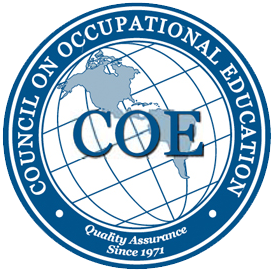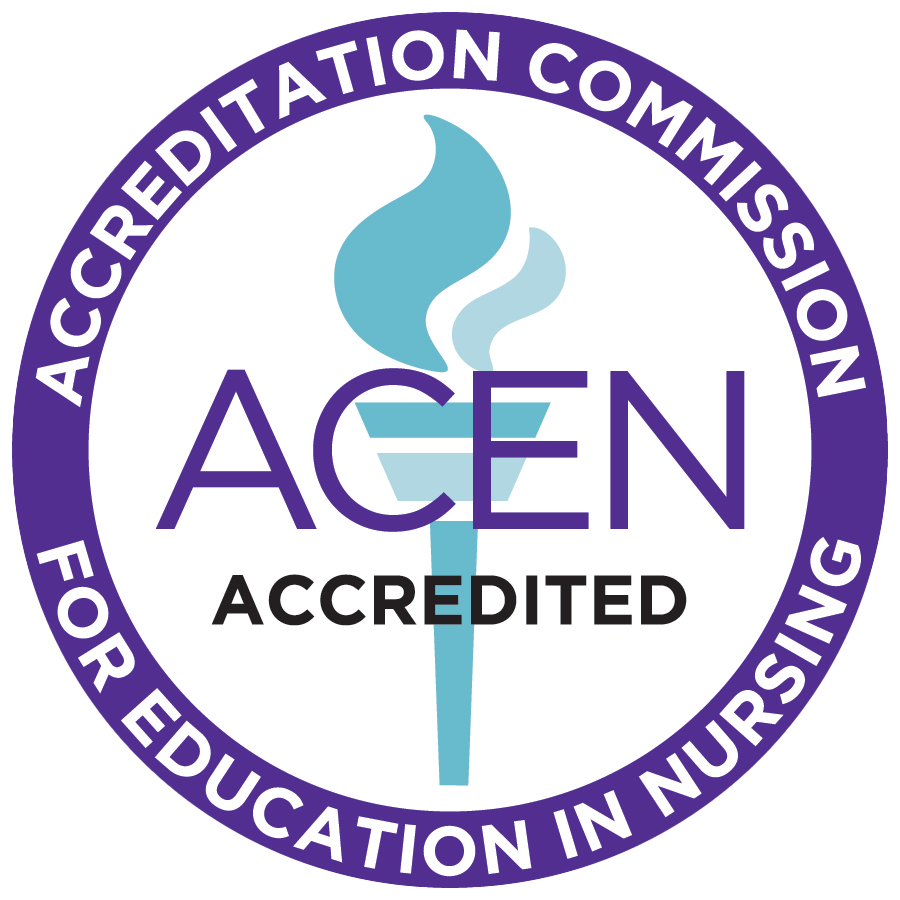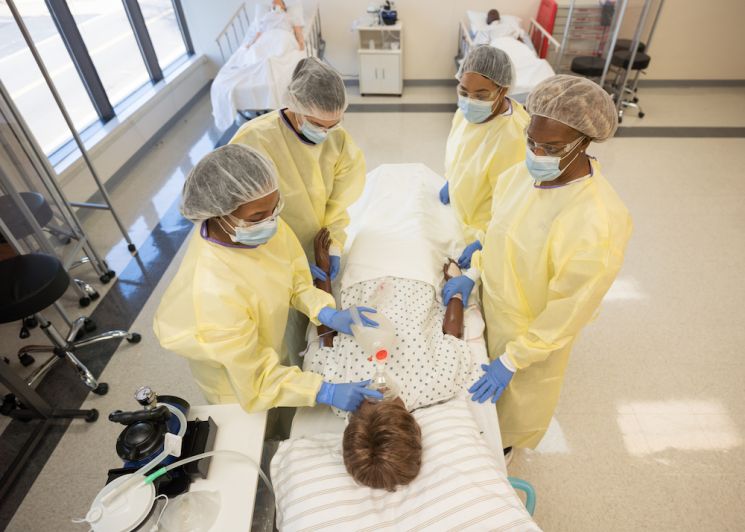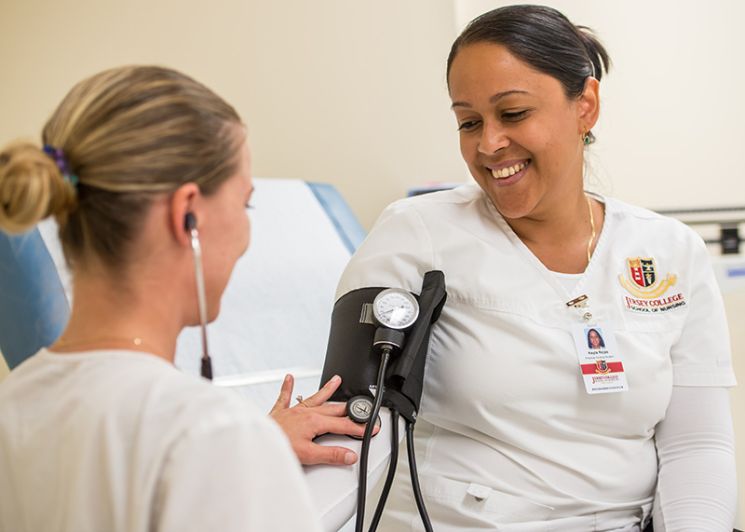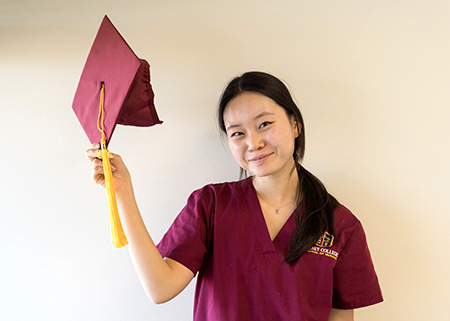
LPN to RN Bridge Program in Port Charlotte, FL
Fast track your career growth: Apply for the LPN to RN Bridge program at Jersey College.
Take your nursing career to the next level by leveraging your existing LPN education and experience. The LPN to RN Bridge program at Jersey College offers a streamlined path to becoming a Registered Nurse, which may allow you to advance your career more quickly than some traditional RN programs.
US job openings for
RNs per year from
2023 to 20331
MONTHS
is the average
time to finish the
RN Program
College in the US for 15-year net present value2
2024
NCLEX-RN
pass rate*
Jersey College
graduates across
the country
1. Bureau of Labor Statistics
2. Georgetown University Center on Education and the Workforce
*These cumulative rates represent all 1st-time testers from all campuses for the Professional Nursing programs. Individual results may vary. Past performance is not a guarantee of future results.
1. Bureau of Labor Statistics
*These cumulative rates represent all 1st-time testers from our Teterboro campus for the Professional Nursing programs. Individual results may vary. Past performance is not a guarantee of future results.
1. Bureau of Labor Statistics
*These cumulative rates represent all 1st-time testers from our Tampa campus for the Professional Nursing programs. Individual results may vary. Past performance is not a guarantee of future results.
1. Bureau of Labor Statistics
*These cumulative rates represent all 1st-time testers from our Port Charlotte campus for the Professional Nursing programs. Individual results may vary. Past performance is not a guarantee of future results.
1. Bureau of Labor Statistics
*These cumulative rates represent all 1st-time testers from our Fort Lauderdale campus for the Professional Nursing programs. Individual results may vary. Past performance is not a guarantee of future results.
1. Bureau of Labor Statistics
*These cumulative rates represent all 1st-time testers from our Jacksonville campus for the Professional Nursing programs. Individual results may vary. Past performance is not a guarantee of future results.
1. Bureau of Labor Statistics
*These cumulative rates represent all 1st-time testers from our Largo campus for the Professional Nursing programs. Individual results may vary. Past performance is not a guarantee of future results.
Get Started
Learn more about how we can help you achieve your dream of living the Nurse Life.
Request More Information
About LPN to RN Bridge Program
The Bridge track of the Professional Nursing Program at Jersey College is designed to facilitate a smooth transition from Licensed Practical Nurse to Registered Nurse.
Upon successful completion of all program requirements, you'll earn an Associate’s Degree in Nursing (ADN)Associate’s Degree in Nursing (ADN) Associate’s Degree in Nursing (ADN) Associate’s Degree in Nursing (ADN) Associate’s Degree in Nursing (ADN) Associate’s Degree in Nursing (ADN) Associate’s Degree in Nursing (ADN) Associate’s Degree in Nursing (ADN) Associate’s Degree in Nursing (ADN) Associate’s Degree in Nursing (ADN) Associate’s Degree in Nursing (ADN) Associate’s Degree in Nursing (ADN) Associate’s Degree in Nursing (ADN) Associate’s Degree in Nursing (ADN) Associate’s Degree in Nursing (ADN) Associate’s Degree in Nursing (ADN) Associate’s Degree in Nursing (ADN) Associate’s Degree in Nursing (ADN). Our graduates are prepared to sit for the National Council Licensure Examination for Registered Nurses (NCLEX-RN) and begin their careers as RNs.
Choose the LPN to RN Bridge program to:
- Expand your career opportunities
- Increase your earning potential
- Gain the skills to work with diverse patient populations
- Become a Registered Nurse (RN)
- Earn an Associate’s Degree in Nursing (ADN)
At Jersey College, we're committed to providing a rigorous and comprehensive nursing education that prepares you for success. Our program combines classroom theory, challenging assignments, skill labs, and clinical experiences to ensure you're ready for an entry-level RN position. Let us help you take the next step in your nursing career today.
Select Your Campus
 Day
Day
 Evening
Evening
Terms
Quarters
Credential granted
Associate's Degree in Nursing (ADN)
Program duration
15-33 Months*
Full-time day classes
Curriculum
The Jersey College Port Charlotte Campus
Admissions Requirements
Begin Application

“The LPN to RN Bridge program was challenging academically but with the support from my instructors and faculty, I was able to keep moving forward through the terms.”
Tanya P.
Fort Lauderdale / LPN to RN Bridge

“I graduated after being an LPN for 25 years and it was the best decision I ever made. I am now 3 courses away from my MSN in Nursing Education and Adult-Gerontology NP! Thank You Jersey College!”
Stephanie B.
Ewing / LPN to RN Bridge

“At first I chose Jersey College because of its convenient location and I quickly felt right at home after my first day. The staff and teachers were so welcoming. The school was unbelievably welcoming and friendly to me and there was always a teacher who had time to listen to me even when I knew they were very busy.”
Kyle R.
Teterboro / LPN to RN Bridge
-

“The LPN to RN Bridge program was challenging academically but with the support from my instructors and faculty, I was able to keep moving forward through the terms.”
Tanya P.
Fort Lauderdale / LPN to RN Bridge
-

“I graduated after being an LPN for 25 years and it was the best decision I ever made. I am now 3 courses away from my MSN in Nursing Education and Adult-Gerontology NP! Thank You Jersey College!”
Stephanie B.
Ewing / LPN to RN Bridge
-

“At first I chose Jersey College because of its convenient location and I quickly felt right at home after my first day. The staff and teachers were so welcoming. The school was unbelievably welcoming and friendly to me and there was always a teacher who had time to listen to me even when I knew they were very busy.”
Kyle R.
Teterboro / LPN to RN Bridge

“The LPN to RN Bridge program was challenging academically but with the support from my instructors and faculty, I was able to keep moving forward through the terms.”
Tanya P.
Fort Lauderdale / LPN to RN Bridge

“I graduated after being an LPN for 25 years and it was the best decision I ever made. I am now 3 courses away from my MSN in Nursing Education and Adult-Gerontology NP! Thank You Jersey College!”
Stephanie B.
Ewing / LPN to RN Bridge

“At first I chose Jersey College because of its convenient location and I quickly felt right at home after my first day. The staff and teachers were so welcoming. The school was unbelievably welcoming and friendly to me and there was always a teacher who had time to listen to me even when I knew they were very busy.”
Kyle R.
Teterboro / LPN to RN Bridge
-

“The LPN to RN Bridge program was challenging academically but with the support from my instructors and faculty, I was able to keep moving forward through the terms.”
Tanya P.
Fort Lauderdale / LPN to RN Bridge
-

“I graduated after being an LPN for 25 years and it was the best decision I ever made. I am now 3 courses away from my MSN in Nursing Education and Adult-Gerontology NP! Thank You Jersey College!”
Stephanie B.
Ewing / LPN to RN Bridge
-

“At first I chose Jersey College because of its convenient location and I quickly felt right at home after my first day. The staff and teachers were so welcoming. The school was unbelievably welcoming and friendly to me and there was always a teacher who had time to listen to me even when I knew they were very busy.”
Kyle R.
Teterboro / LPN to RN Bridge

“The LPN to RN Bridge program was challenging academically but with the support from my instructors and faculty, I was able to keep moving forward through the terms.”
Tanya P.
Fort Lauderdale / LPN to RN Bridge

“I attended the Fort Lauderdale campus as an LPN and left an RN. You're next! Jersey College is amazing. The teachers are so supportive, they are always in your corner rooting for you.”
Maureen S.
Fort Lauderdale / LPN to RN Bridge

“Jersey College gave me the opportunity to finally reach my dream of becoming an RN. I can’t wait to see what the future holds!”
Sasha S.
Fort Lauderdale / Traditional RN
-

“The LPN to RN Bridge program was challenging academically but with the support from my instructors and faculty, I was able to keep moving forward through the terms.”
Tanya P.
Fort Lauderdale / LPN to RN Bridge
-

“I attended the Fort Lauderdale campus as an LPN and left an RN. You're next! Jersey College is amazing. The teachers are so supportive, they are always in your corner rooting for you.”
Maureen S.
Fort Lauderdale / LPN to RN Bridge
-

“Jersey College gave me the opportunity to finally reach my dream of becoming an RN. I can’t wait to see what the future holds!”
Sasha S.
Fort Lauderdale / Traditional RN

“My favorite and most valuable resource during my time as a student was, by far, the faculty and my teachers. They were willing to break down what I needed to understand and be successful.”
Jackie M.
Jacksonville / LPN to RN Bridge

“What an amazing journey, no matter your obstacles anything is possible with hard work!! Follow your dreams and reach high!! Thank you Jersey College! NCLEX-RN one and done in 60 questions.”
Zemetra C.
Jacksonville / LPN to RN Bridge

"After working as an LPN I decided on the LPN to RN bridge, with the support of my Family I graduated and passed my NCLEX the 1st time (Staff nurse Brain Injury floor)."
Shanicqua L.
Jacksonville / LPN to RN Bridge
-

“My favorite and most valuable resource during my time as a student was, by far, the faculty and my teachers. They were willing to break down what I needed to understand and be successful.”
Jackie M.
Jacksonville / LPN to RN Bridge
-

“What an amazing journey, no matter your obstacles anything is possible with hard work!! Follow your dreams and reach high!! Thank you Jersey College! NCLEX-RN one and done in 60 questions.”
Zemetra C.
Jacksonville / LPN to RN Bridge
-

"After working as an LPN I decided on the LPN to RN bridge, with the support of my Family I graduated and passed my NCLEX the 1st time (Staff nurse Brain Injury floor)."
Shanicqua L.
Jacksonville / LPN to RN Bridge

“The road here wasn't easy, but no matter the circumstances, I continued to go after and reach my goal. I am truly proud of this moment in my life.”
Sade R.
Largo / Traditional RN

“Jersey College has allowed me to follow my dreams of becoming a nurse. I’m so thankful for all the instructors at the Largo campus who helped me through my journey. Jersey College will always feel like family to me!”
Najia C.
Largo / Traditional RN

“I thank all the amazing instructors and staff at the Largo campus that prepared me for this wonderful opportunity. I graduated a year ago and endless possibilities are knocking at my door since. I’m so excited and couldn’t be happier. Thank you Jersey College!”
Ellen G.
Largo / Traditional RN
-

“The road here wasn't easy, but no matter the circumstances, I continued to go after and reach my goal. I am truly proud of this moment in my life.”
Sade R.
Largo / Traditional RN
-

“Jersey College has allowed me to follow my dreams of becoming a nurse. I’m so thankful for all the instructors at the Largo campus who helped me through my journey. Jersey College will always feel like family to me!”
Najia C.
Largo / Traditional RN
-

“I thank all the amazing instructors and staff at the Largo campus that prepared me for this wonderful opportunity. I graduated a year ago and endless possibilities are knocking at my door since. I’m so excited and couldn’t be happier. Thank you Jersey College!”
Ellen G.
Largo / Traditional RN

“I never thought I would end up working in the nation’s busiest ER saving lives, but here I am. My advice to you: believe in yourself and you will be unstoppable.”
Jenna T.
Tampa / LPN to RN Bridge
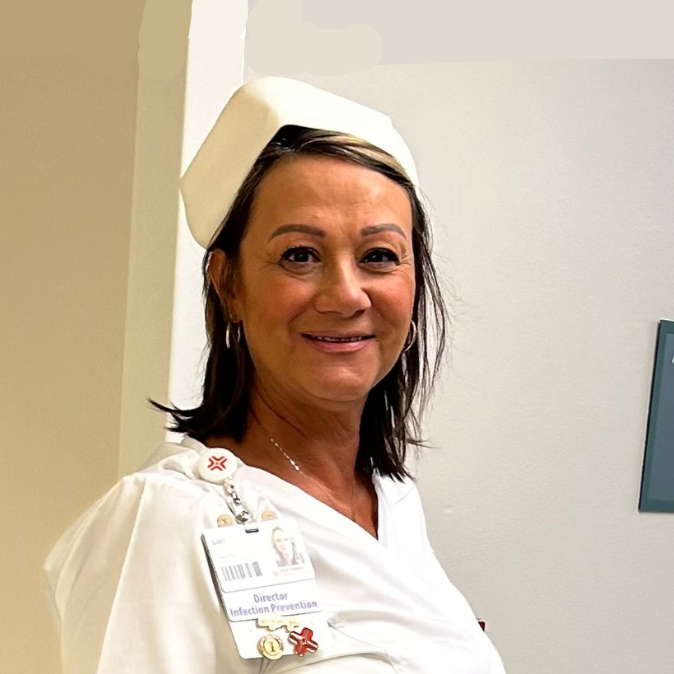
“Transitioning from LPN to RN was the greatest career move I could have ever made! It has changed my whole world. I was born to be a caregiver. I obtained my education and skills from Jersey College!"
Lori B.
Tampa / LPN to RN Bridge

"The school isn’t like your regular college where you’re just a number; you get to know everyone of your instructors as well as the Dean of students and the program chairs. All of them are completely dedicated to getting you through the program."
Ryan M.
Tampa / LPN to RN Bridge
-

“I never thought I would end up working in the nation’s busiest ER saving lives, but here I am. My advice to you: believe in yourself and you will be unstoppable.”
Jenna T.
Tampa / LPN to RN Bridge
-

“Transitioning from LPN to RN was the greatest career move I could have ever made! It has changed my whole world. I was born to be a caregiver. I obtained my education and skills from Jersey College!"
Lori B.
Tampa / LPN to RN Bridge
-

"The school isn’t like your regular college where you’re just a number; you get to know everyone of your instructors as well as the Dean of students and the program chairs. All of them are completely dedicated to getting you through the program."
Ryan M.
Tampa / LPN to RN Bridge

“I graduated after being an LPN for 25 years and it was the best decision I ever made. I am now 3 courses away from my MSN in Nursing Education and Adult-Gerontology NP! Thank You Jersey College!”
Stephanie B.
Ewing / LPN to RN Bridge

“I feel the staff at Jersey College has helped mold me to become a greater version of myself and a greater nurse. I am now a Registered Nurse, I have accomplished what I set forth to do and so can you.”
Michelle J.
Ewing / LPN to RN Bridge

“Jersey College helped me pave my way into my dream career. I’m thankful for not only the new career I have, but also staff and classmates that became family.”
Demetra B.
Ewing / LPN to RN Bridge
-

“I graduated after being an LPN for 25 years and it was the best decision I ever made. I am now 3 courses away from my MSN in Nursing Education and Adult-Gerontology NP! Thank You Jersey College!”
Stephanie B.
Ewing / LPN to RN Bridge
-

“I feel the staff at Jersey College has helped mold me to become a greater version of myself and a greater nurse. I am now a Registered Nurse, I have accomplished what I set forth to do and so can you.”
Michelle J.
Ewing / LPN to RN Bridge
-

“Jersey College helped me pave my way into my dream career. I’m thankful for not only the new career I have, but also staff and classmates that became family.”
Demetra B.
Ewing / LPN to RN Bridge

“At first I chose Jersey College because of its convenient location and I quickly felt right at home after my first day. The staff and teachers were so welcoming. The school was unbelievably welcoming and friendly to me and there was always a teacher who had time to listen to me even when I knew they were very busy.”
Kyle R.
Teterboro / LPN to RN Bridge

“Thank you for all the instructors, staff, everyone in Jersey College who believes in me, who encouraged me to keep going, who always remind me 'You Can Do This.”
Carla P.
Teterboro / LPN to RN Bridge

"I am an RN, BSN currently working as a nursing supervisor. I’m a Jersey College alumni LPN Class of 2014 and RN Class of 2017. I earned my BSN in 2018 and now on the road to masters in this beautiful career."
Sophia T.
Teterboro / LPN to RN Bridge
-

“At first I chose Jersey College because of its convenient location and I quickly felt right at home after my first day. The staff and teachers were so welcoming. The school was unbelievably welcoming and friendly to me and there was always a teacher who had time to listen to me even when I knew they were very busy.”
Kyle R.
Teterboro / LPN to RN Bridge
-

“Thank you for all the instructors, staff, everyone in Jersey College who believes in me, who encouraged me to keep going, who always remind me 'You Can Do This.”
Carla P.
Teterboro / LPN to RN Bridge
-

"I am an RN, BSN currently working as a nursing supervisor. I’m a Jersey College alumni LPN Class of 2014 and RN Class of 2017. I earned my BSN in 2018 and now on the road to masters in this beautiful career."
Sophia T.
Teterboro / LPN to RN Bridge
Why Jersey College?
- Academic Excellence
- Community Engagement
- Diverse Student Experience
- Adaptation to Change
Jersey College is dedicated to excellence in nursing education. We are devoted to providing quality nursing education and to bridge the labor gap in the nursing field.
Some of the main benefits you will enjoy as a nursing student at Jersey College include:
- Sole focus on Nursing Education for nearly 20 years
- Individualized attention and support for our students
- The Jersey College family atmosphere
- Dedicated faculty who are passionate about the art and science of nursing
- Join a network of more than 10,000 graduates
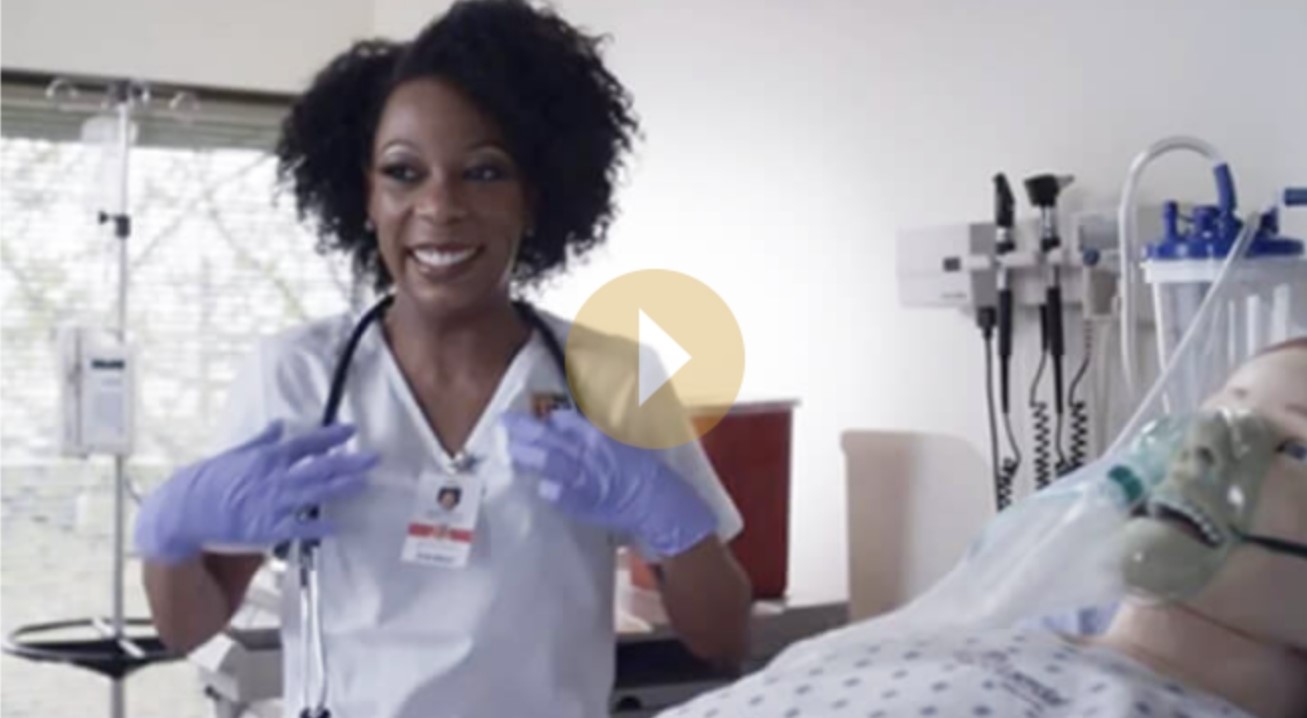
At Jersey College, our instructors prepare you to live the NurseLife.

As a Jersey College nursing student, you'll benefit from:

Individualized
support & attention

Dedicated faculty
passionate about the art and science of nursing

A network of over
10,000 graduates

The Jersey College
family atmosphere

Our sole focus on
nursing education
for nearly 20 years
Jersey College operates across the country, offering programs designed to meet the diverse needs of aspiring nurses. In addition to the LPN to RN Bridge program, we provide the following programs at select campuses:
- RN Program – Professional Nursing program granting an Associate Degree in Nursing (ADN)
- LPN Program – Practical Nursing program granting an LPN Diploma
Our LPN to RN Bridge program combines the best of both worlds, allowing you to build on your practical nursing experience while advancing your career to become a Registered Nurse.
Join the Jersey College family and experience the NurseLife for yourself. Whether you're in Tampa, Chattanooga, New York City, Dothan, Enterprise, Mesa, Phoenix, Scottsdale, Tempe, Tucson, Marana, Sahuarita, Brooksville, Spring Hill, New Port Richey, Ocala, Fort Lauderdale, Hollywood, Oakland Park, Jacksonville, Daytona Beach, Gainesville, Savannah, Largo, Clearwater, St. Petersburg, Melbourne, Palm Bay, Rockledge, Orlando, Naples, Lehigh Acres, Port Charlotte, Venice, Tampa, Brandon, Lakeland, Riverview, Ewing, Trenton, North Brunswick, Teterboro, Hackensack, Bronx, Brooklyn, Staten Island, Scranton, Allentown, Pittston, Wilkes-Barre, York, Reading, Lancaster, Harrisburg, Cleveland, Chattanooga, North Georgia, Atlanta, Knoxville, Crossville, Maryville, or near any of our other locations across the country, we're here to support your journey to becoming an RN.

Jersey College is ranked as a top 15 associate-degree granting College in the United States for Return on Investment according to a report by Georgetown University's Center on Education and the Workforce, entitled "Ranking 4,500 Colleges by ROI (2025)"
The Bridge Program Experience in Port Charlotte, FL
Information is based on the selected campus:
Jersey College Plaza
Find full accreditation information for this campus and program here.
The Mesa campus of Jersey College is located onsite at Mountain Vista Medical Center. The professional nursing degree program is offered through an affiliation between the medical center and Jersey College, and offers students opportunities to become a registered nurse. The facility provides access to modern classrooms, experienced instructors, and a unique nursing education experience.Find full accreditation information for this campus and program here.
The Tucson campus of Jersey College is located onsite at the Northwest Medical Center Affiliated Hospital. The professional nursing degree program is offered through an affiliation between the medical center and Jersey College, and offers students access to modern classrooms and practical facilities, experienced instructors, and hands-on learning opportunities.Find full accreditation information for this campus and program here.
The Brooksville, FL campus of Jersey College is located on-site at Tampa General Affiliated Hospital and offers a professional nursing degree program through an affiliation with the hospital. The campus provides students with modern learning technology, hands-on practice, and comfortable facilities for studying, group work, and meeting with faculty mentors.Find full accreditation information for this campus and program here.
The Fort Lauderdale, FL campus of Jersey College offers nursing education to students from across southern Florida with convenient day or evening classes available. The campus offers modern learning facilities, opportunities for hands-on practice, and comfortable spaces for studying, group work, and more.Find full accreditation information for this campus and program here.
The Jacksonville, FL campus of Jersey College offers nursing education to students from northern Florida and southern Georgia with convenient day or evening classes available. The campus offers modern learning facilities, opportunities for hands-on practice, and comfortable spaces for studying, group work, and more.Find full accreditation information for this campus and program here.
The Largo, FL campus of Jersey College is located on-site at HCA Florida Largo West Affiliated Hospital and, through an affiliation with the hospital, offers a professional nursing program featuring coursework in nursing science, general education, and clinical practice.Find full accreditation information for this campus and program here.
The Melbourne, FL campus of Jersey College is located on-site at Melbourne Regional Medical Center and, through an affiliation with the medical center, offers a rigorous professional nursing program with access to modern classrooms and practical facilities, experienced instructors, and hands-on learning opportunities.Find full accreditation information for this campus and program here.
The Jersey College campus in Naples, FL at Physicians Regional Medical Affiliated Hospital offers a robust professional RN program through an affiliation with the medical center. Our Naples staff includes well-trained and experienced instructors and administration from around the region that are dedicated to providing a comprehensive nursing education that can prepare you for a real world career.Find full accreditation information for this campus and program here.
The professional nursing program at Jersey College’s Port Charlotte, Fl campus is presented through an affiliation between the college and Shorepoint Health. The program offers a rigorous professional nursing education with access to modern classrooms and practical facilities, experienced instructors, and hands-on learning opportunities.Find full accreditation information for this campus and program here.
The Jersey College campus in Tampa, FL offers our rigorous professional nursing program with convenient day or evening classes to fit your schedule. Our modern facilities allow you to learn and practice the processes and techniques necessary to prepare for excellence in the field.Find full accreditation information for this campus and program here.
The Jersey College’s Ewing, NJ campus offers nursing education to students from across central New Jersey with convenient day or evening classes available. The campus features modern learning facilities, opportunities for hands-on practice, and comfortable spaces for studying, group work, and more.Find full accreditation information for this campus and program here.
The Jersey College’s Teterboro, NJ campus offers nursing education to students from across northern New Jersey with convenient day or evening classes available. The campus provides modern learning facilities, opportunities for hands-on practice, and comfortable spaces for studying, group work, and more.Find full accreditation information for this campus and program here.
The professional nursing program at the Scranton, PA campus of Jersey College is presented through an affiliation with Commonwealth Health Moses Taylor Affiliated Hospital. The campus provides modern learning technology with hands-on practice and facilities where students can spend time studying, working in groups, and consulting faculty.Find full accreditation information for this campus and program here.
Jersey College’s York, PA campus offers a rigorous professional nursing program in affiliation with WellSpan Health Affiliated Hospital. The campus offers modern learning facilities, opportunities for hands-on practice, and comfortable spaces for studying, group work, and more.Find full accreditation information for this campus and program here.
The professional nursing program at Jersey College’s Cleveland, TN campus provides a robust nursing education to students in the greater Chattanooga area through an affiliation with Tennova Healthcare. The program offers a rigorous professional nursing education with access to modern classrooms and practical facilities, experienced instructors, and hands-on learning opportunities.Find full accreditation information for this campus and program here.
Jersey College’s Knoxville, TN campus offers a rigorous professional nursing program in affiliation with Tennova Healthcare Affiliated Hospital. The campus offers modern learning facilities, opportunities for hands-on practice, and comfortable spaces for studying, group work, and more.Find full accreditation information for this campus and program here.
Upon successful completion, graduates will have enhanced their assessment skills, critical thinking abilities, and understanding of complex patient care management. The program prepares students to excel in the RN role, emphasizing advanced pharmacology, leadership skills, and comprehensive patient care. Graduates are prepared to take the NCLEX-RN exam, a crucial step in becoming a licensed Registered Nurse.
Campus Activities in Dothan, AL
At the Dothan campus, you'll benefit from our advanced skills labs, where you can practice in a safe, controlled environment. This hands-on experience is complemented by our hospital-affiliated program, offering the potential for clinical experience in real healthcare settings. This comprehensive approach ensures you're well-prepared for the transition from LPN to RN.
Campus Activities in Tucson, AZ
At the Tucson campus, you'll benefit from our advanced skills labs, where you can practice in a safe, controlled environment. This hands-on experience is complemented by our hospital-affiliated program, offering the potential for clinical experience in real healthcare settings. This comprehensive approach ensures you're well-prepared for the transition from LPN to RN.
Campus Activities in Mesa, AZ
At the Mesa campus, you'll benefit from our advanced skills labs, where you can practice in a safe, controlled environment. This hands-on experience is complemented by our hospital-affiliated program, offering the potential for clinical experience in real healthcare settings. This comprehensive approach ensures you're well-prepared for the transition from LPN to RN.
Campus Activities in Brooksville, FL
At the Brooksville campus, you'll benefit from our advanced skills labs, where you can practice in a safe, controlled environment. This hands-on experience is complemented by our hospital-affiliated program, offering the potential for clinical experience in real healthcare settings. This comprehensive approach ensures you're well-prepared for the transition from LPN to RN.
Campus Activities in Fort Lauderdale, FL
Our Fort Lauderdale campus features advanced skills labs, providing a realistic environment to hone your nursing skills. Additionally, we offer flexible evening program options, allowing working LPNs to balance their current jobs with their educational goals. This combination of hands-on practice and schedule flexibility supports a smooth transition to your RN career.
Campus Activities in Jacksonville, FL
Our Jacksonville campus features advanced skills labs, providing a realistic environment to hone your nursing skills. Additionally, we offer flexible evening program options, allowing working LPNs to balance their current jobs with their educational goals. This combination of hands-on practice and schedule flexibility supports a smooth transition to your RN career.
Campus Activities in Largo, FL
At the Largo campus, you'll benefit from our advanced skills labs, where you can practice in a safe, controlled environment. This hands-on experience is complemented by our hospital-affiliated program, offering the potential for clinical experience in real healthcare settings. This comprehensive approach ensures you're well-prepared for the transition from LPN to RN.
Campus Activities in Melbourne, FL
At the Melbourne campus, you'll benefit from our advanced skills labs, where you can practice in a safe, controlled environment. This hands-on experience is complemented by our hospital-affiliated program, offering the potential for clinical experience in real healthcare settings. This comprehensive approach ensures you're well-prepared for the transition from LPN to RN.
Campus Activities in Naples, FL
At the Naples campus, you'll benefit from our advanced skills labs, where you can practice in a safe, controlled environment. This hands-on experience is complemented by our hospital-affiliated program, offering the potential for clinical experience in real healthcare settings. This comprehensive approach ensures you're well-prepared for the transition from LPN to RN.
Campus Activities in Port Charlotte, FL
At the Port Charlotte campus, you'll benefit from our advanced skills labs, where you can practice in a safe, controlled environment. This hands-on experience is complemented by our hospital-affiliated program, offering the potential for clinical experience in real healthcare settings. This comprehensive approach ensures you're well-prepared for the transition from LPN to RN.
Campus Activities in Tampa, FL
Our Tampa campus features advanced skills labs, providing a realistic environment to hone your nursing skills. Additionally, we offer flexible evening program options, allowing working LPNs to balance their current jobs with their educational goals. This combination of hands-on practice and schedule flexibility supports a smooth transition to your RN career.
Campus Activities in Ewing, NJ
Our Ewing campus features advanced skills labs, providing a realistic environment to hone your nursing skills. Additionally, we offer flexible evening program options, allowing working LPNs to balance their current jobs with their educational goals. This combination of hands-on practice and schedule flexibility supports a smooth transition to your RN career.
Campus Activities in Teterboro, NJ
Our Teterboro campus features advanced skills labs, providing a realistic environment to hone your nursing skills. Additionally, we offer flexible evening program options, allowing working LPNs to balance their current jobs with their educational goals. This combination of hands-on practice and schedule flexibility supports a smooth transition to your RN career.
Campus Activities in Scranton, PA
At the Scranton campus, you'll benefit from our advanced skills labs, where you can practice in a safe, controlled environment. This hands-on experience is complemented by our hospital-affiliated program, offering the potential for clinical experience in real healthcare settings. This comprehensive approach ensures you're well-prepared for the transition from LPN to RN.
Campus Activities in York, PA
At the York campus, you'll benefit from our advanced skills labs, where you can practice in a safe, controlled environment. This hands-on experience is complemented by our hospital-affiliated program, offering the potential for clinical experience in real healthcare settings. This comprehensive approach ensures you're well-prepared for the transition from LPN to RN.
Campus Activities in Cleveland, TN
At the Cleveland campus, you'll benefit from our advanced skills labs, where you can practice in a safe, controlled environment. This hands-on experience is complemented by our hospital-affiliated program, offering the potential for clinical experience in real healthcare settings. This comprehensive approach ensures you're well-prepared for the transition from LPN to RN.
Campus Activities in Knoxville, TN
At the Knoxville campus, you'll benefit from our advanced skills labs, where you can practice in a safe, controlled environment. This hands-on experience is complemented by our hospital-affiliated program, offering the potential for clinical experience in real healthcare settings. This comprehensive approach ensures you're well-prepared for the transition from LPN to RN.

-
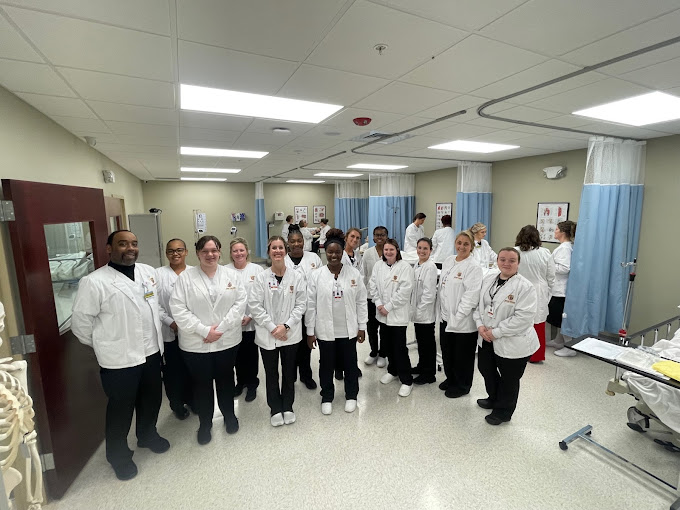
Discover hands-on learning in the modern skills lab at Jersey College's Dothan, AL campus.
-
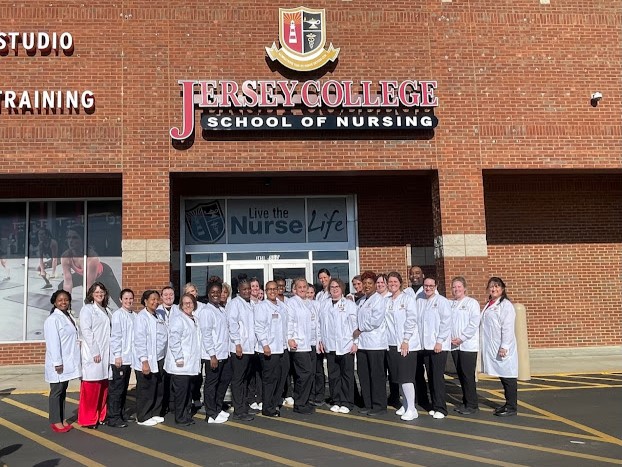
Experience a vibrant community dedicated to healthcare excellence at Jersey College's Dothan campus, where faculty and students unite to advance their skills and make a difference.
-
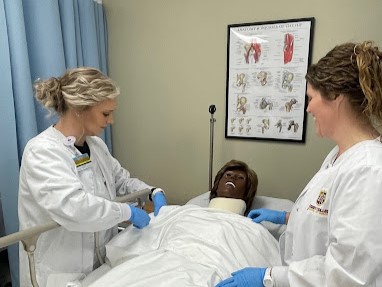
Nursing students practice patient care techniques in Dothan's skills lab.
-
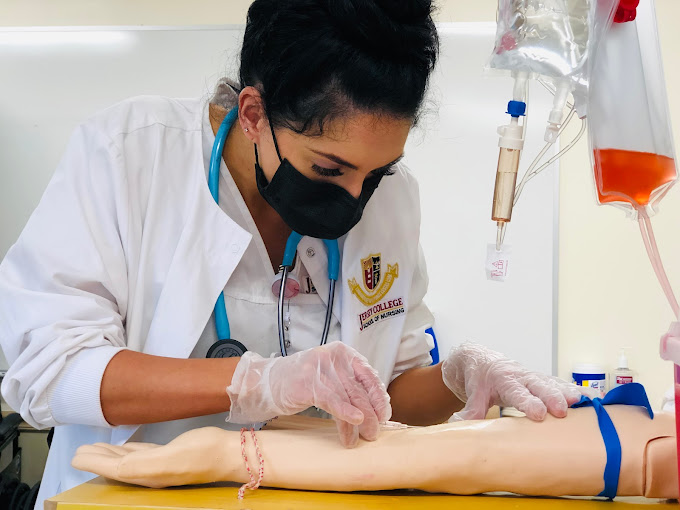
A nursing student at Jersey College meticulously practices IV insertion on a training arm, honing her clinical skills.
-

The Mesa, AZ campus is a beautiful place to be.
-
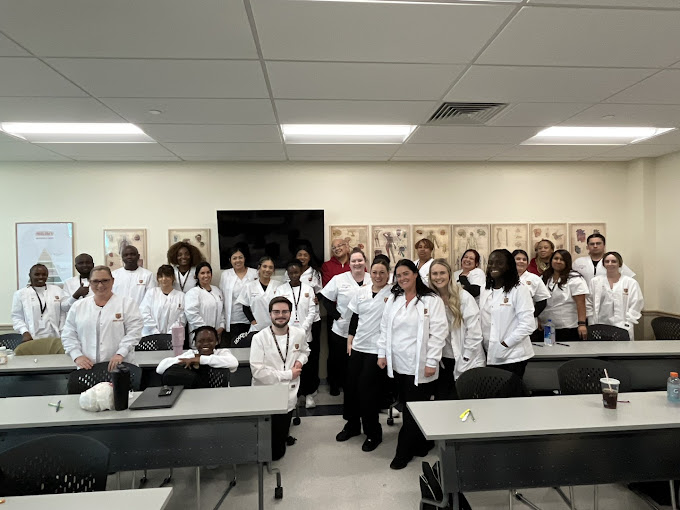
Join a supportive cohort of your peers at Jersey College's Mesa campus, where you can grow, learn, and succeed together in your nursing journey.
-

A spacious and modern classroom ready for the next generation of nursing students at Jersey College's Mesa, AZ, campus.
-
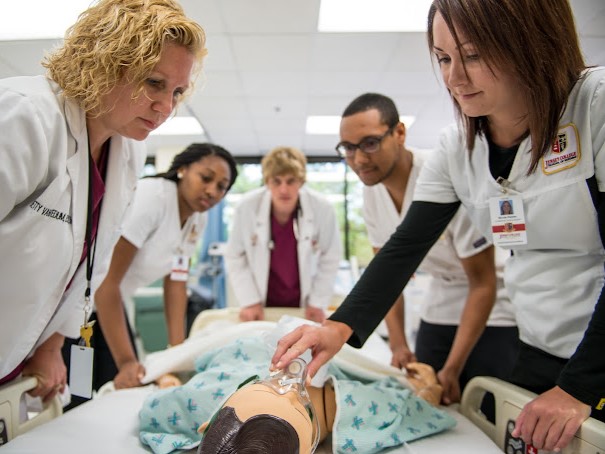
A focused group of Jersey College students and an instructor engage in a critical care training session.
-
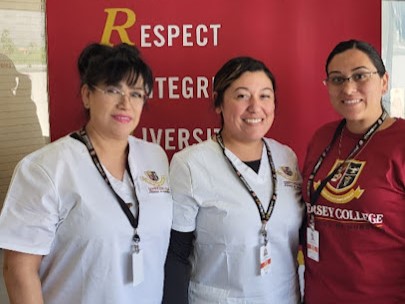
Faculty members at Jersey College's Tucson, AZ campus proudly stand before a banner promoting core values.
-
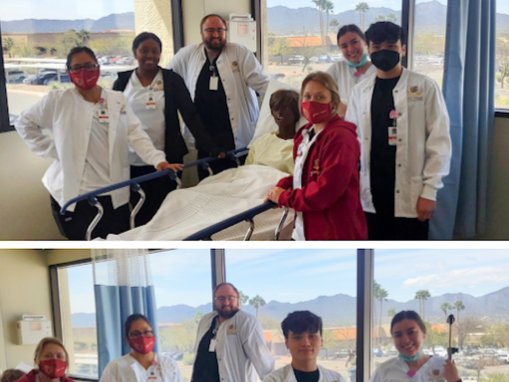
Nursing students in Tucson, AZ practice patient care with enthusiasm and teamwork.
-
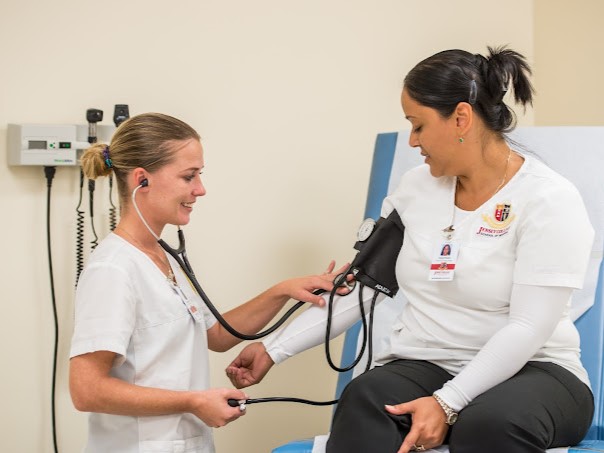
Learn nursing fundamentals from experienced instructors at Jersey College, where hands-on training prepares you for real-world healthcare challenges.
-
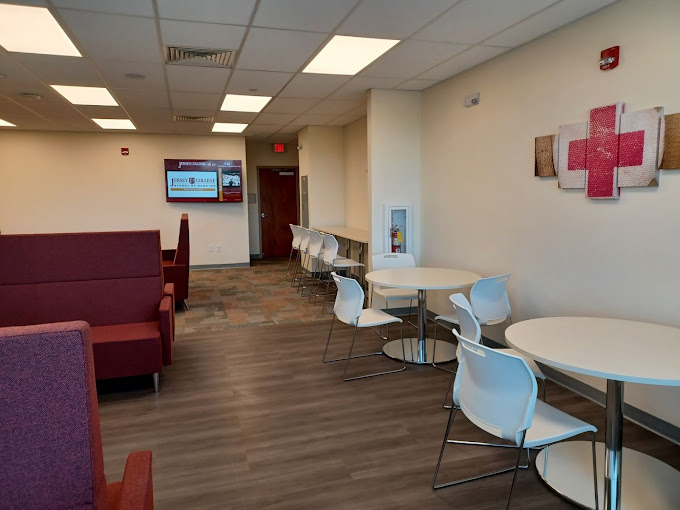
Find a quiet corner for study or a quick break in the student lounge, designed for comfort and collaboration.
-
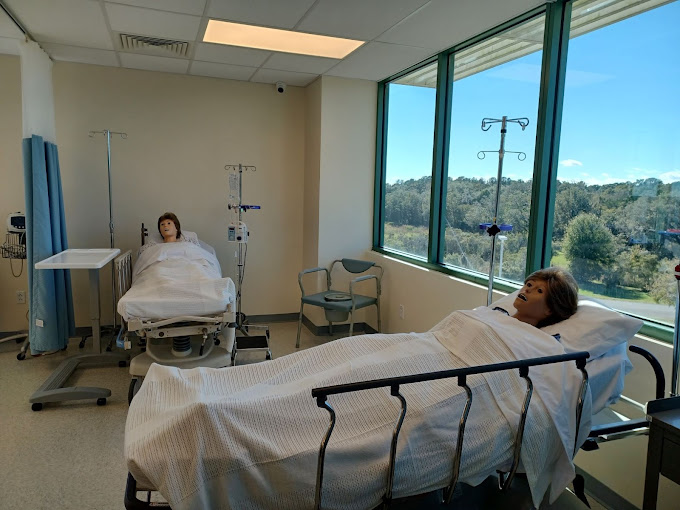
Take advantage of top-notch training environments to improve your nursing techniques and patient care skills.
-

Discover where your nursing journey begins at the welcoming entrance of Jersey College's Brooksville campus.
-
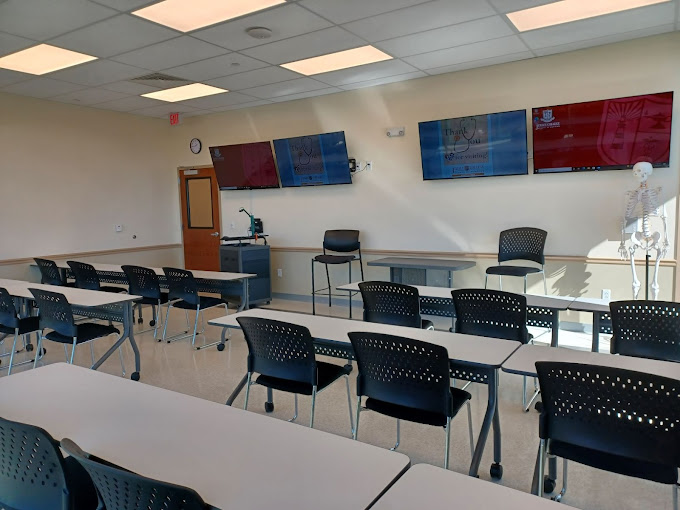
Explore the modern classrooms at Jersey College's Brooksville, FL campus, designed to support your nursing education.
-
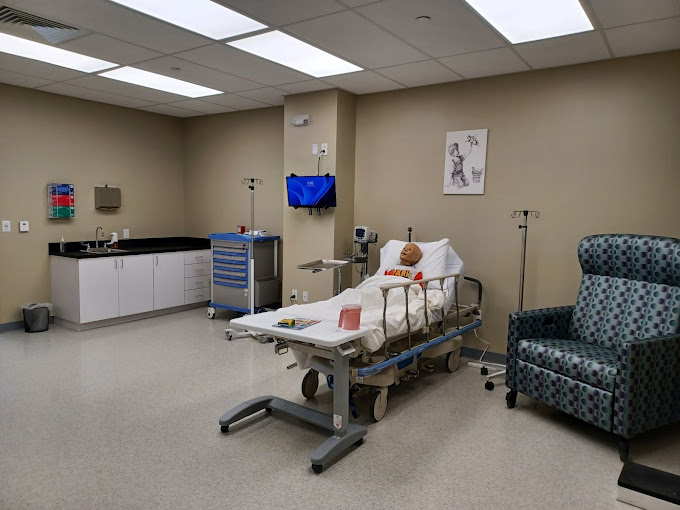
Take advantage of top-notch training environments to improve your nursing techniques and patient care skills.
-
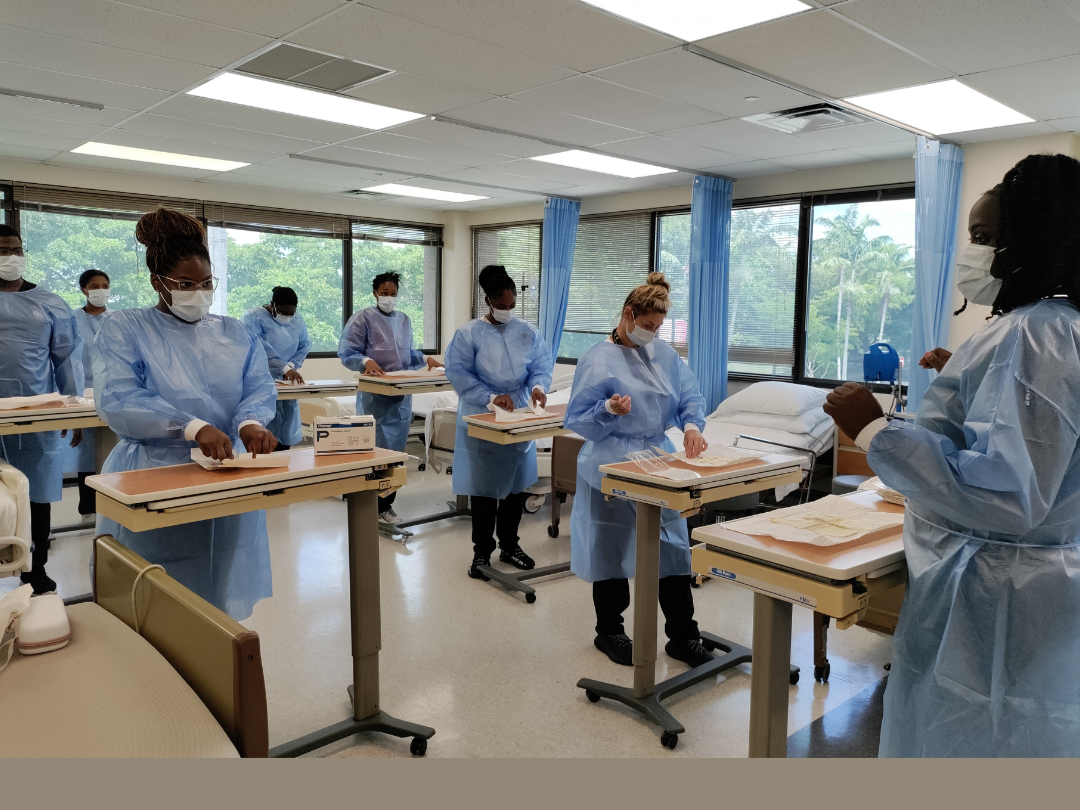
Nursing school students immerse themselves in practical nursing skills workshops, equipped with tools and techniques in our Fort Lauderdale campus. -
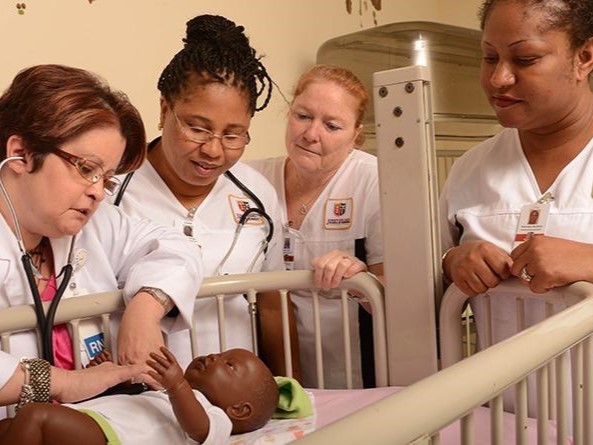
Our faculty and students collaborate in training simulations to ensure the highest standards of care for all patients.
-
Welcome to Jersey College's Fort Lauderdale campus, where the lush tropical setting complements our commitment to exceptional nursing education.
-
Explore the serene and lush surroundings of Jersey College's Fort Lauderdale campus, a perfect environment for nurturing your nursing aspirations.
-
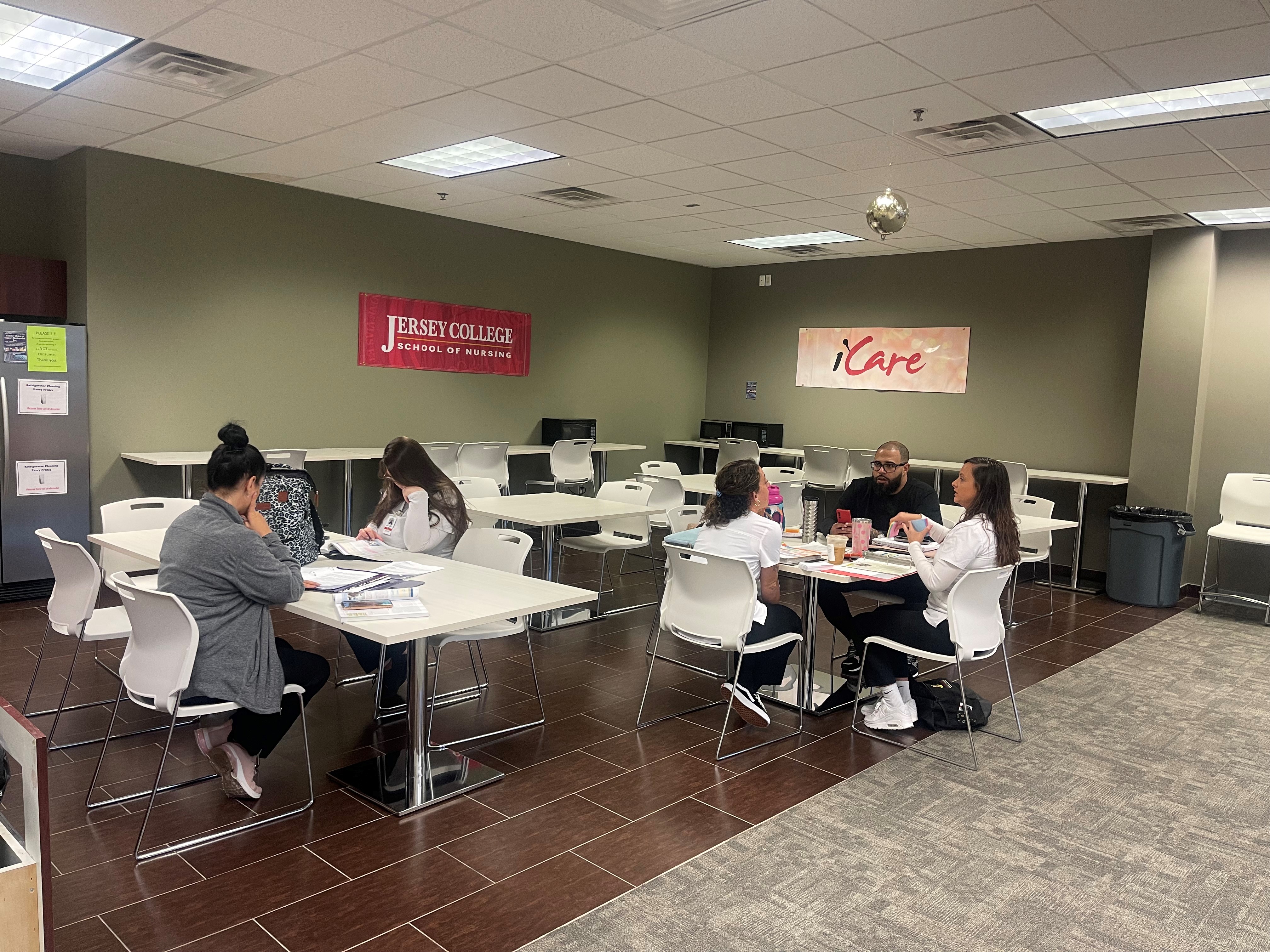
Nursing students engage in thoughtful discussions and study sessions in our comfortable and spacious study lounge.
-
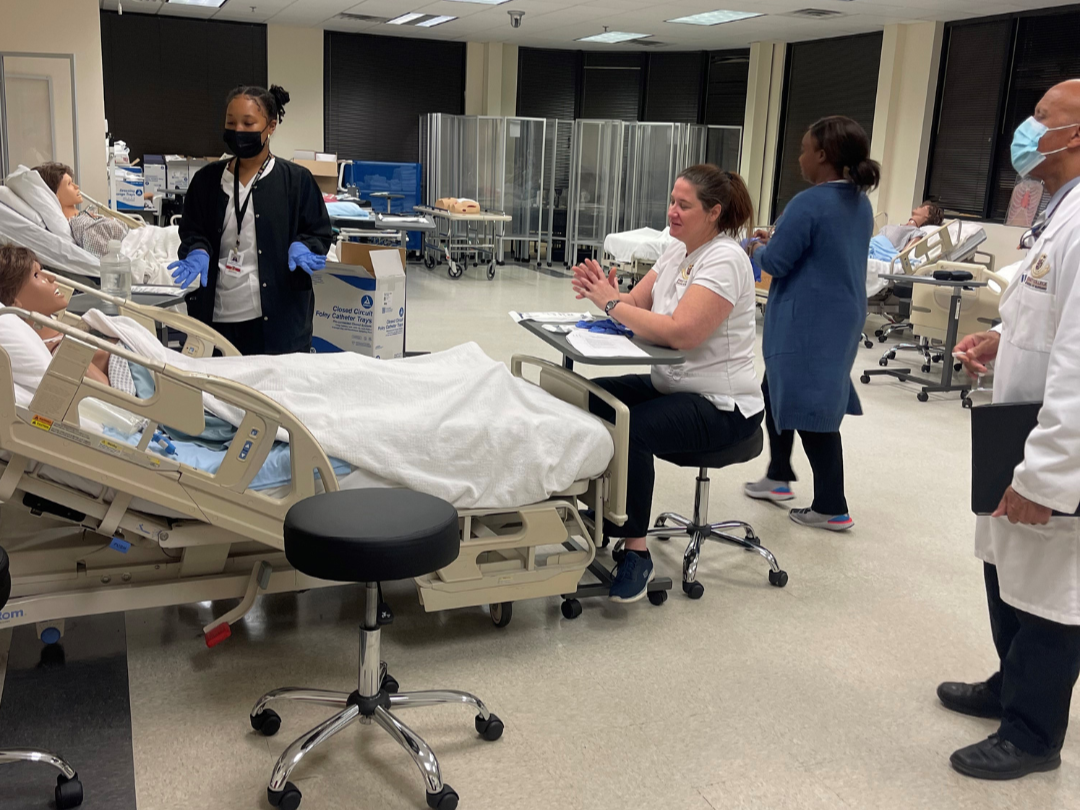
Our school provides a collaborative environment for nursing students to learn and practice their clinical skills.
-
Jersey College's Jacksonville campus provides in-depth practical training, where students develop essential skills under the guidance of experienced instructors.
-
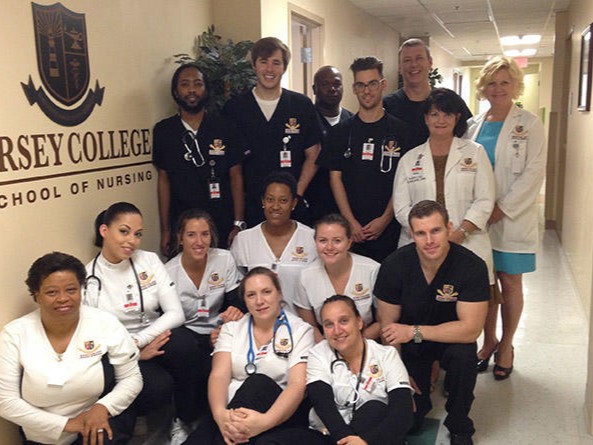
Meet the dedicated team of students and faculty at Jersey College's Largo campus, where passion for nursing education drives every endeavor.
-

Our campus shines at community events, showcasing the school's proud commitment to healthcare education and public engagement.
-
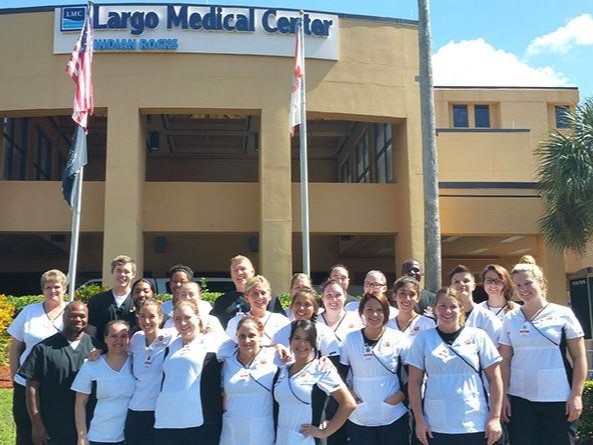
Jersey College students and faculty proudly gather at Largo Medical Center, a key partner in delivering exceptional clinical training and experiences.
-
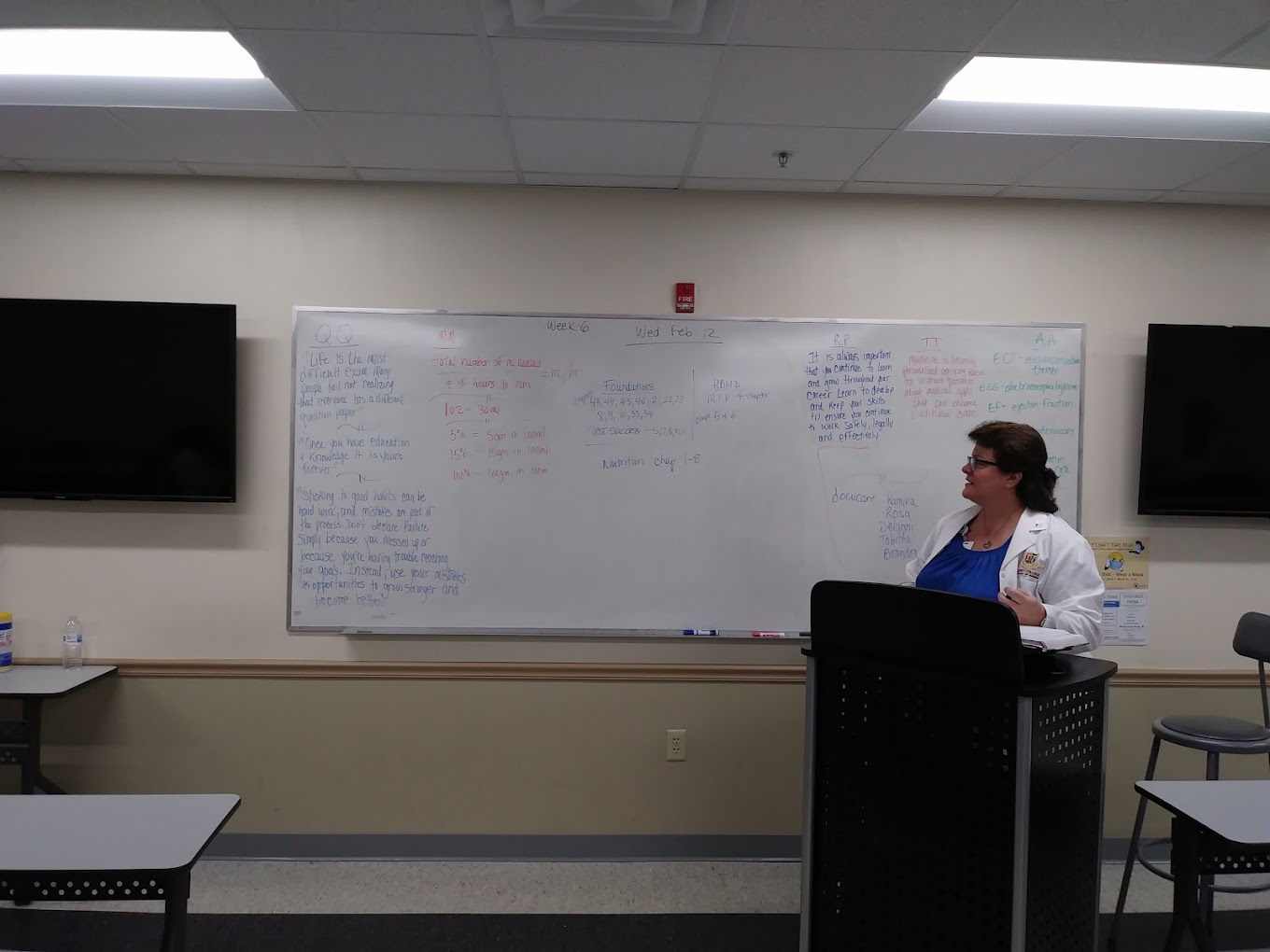
Dedicated educators at Jersey College's Largo campus lead dynamic lectures, equipping students with the knowledge and tools they need to succeed in nursing.
-

At Jersey College's Melbourne campus, students gain hands-on experience guided by seasoned instructors, enhancing their practical nursing skills.
-
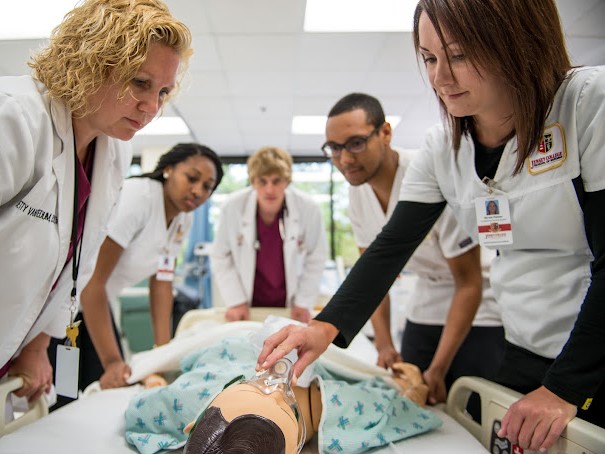
Jersey College students engage in a critical care practice session, applying their skills in a supportive and realistic learning environment.
-

Collaborative learning is key at Jersey College's Melbourne campus, where students and faculty share insights and strengthen their nursing expertise together.
-
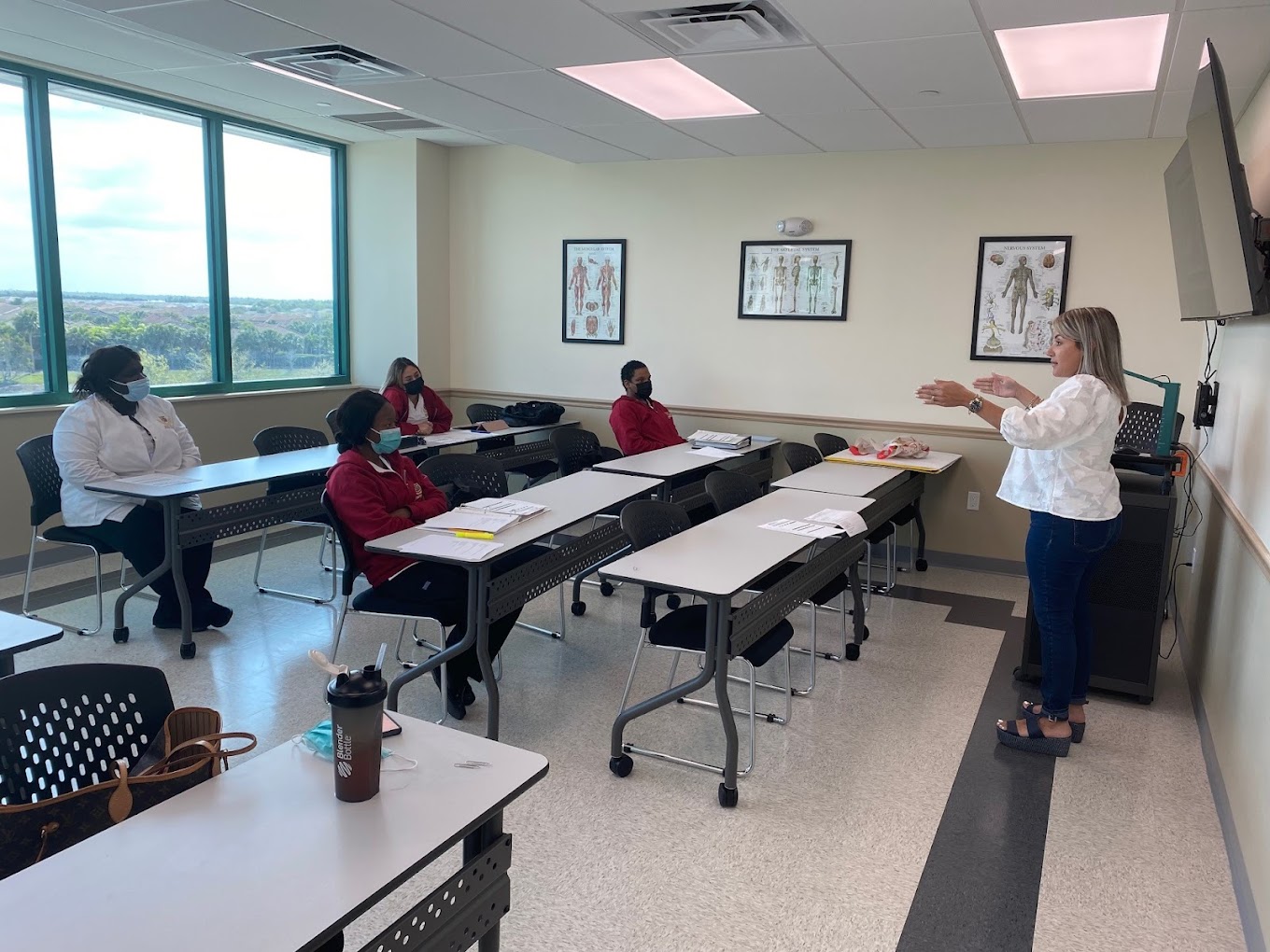
Instructors at Jersey College's Naples campus deliver comprehensive lessons in a vibrant classroom setting, preparing students for successful nursing careers.
-
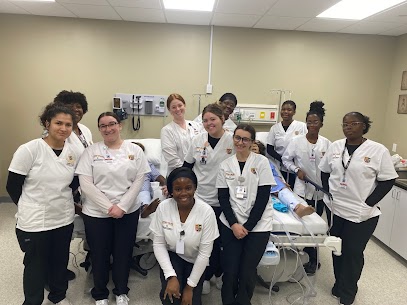
Nursing students in Naples gather with enthusiasm in their clinical skills lab, ready to take on the challenges of their education together.
-
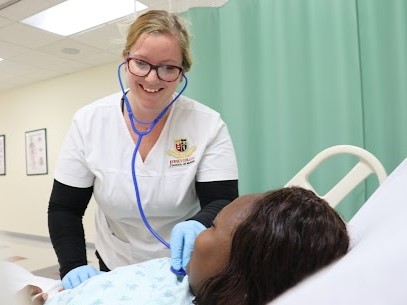
A student in Naples engages with hands-on learning, perfecting her skills with a stethoscope in the clinical skills lab.
-

Jersey College's Port Charlotte campus welcomes aspiring nurses with a modern learning environment and supportive community.
-

Our school exemplifies a diverse and vibrant community, where students and staff come together to pursue excellence in nursing education.
-
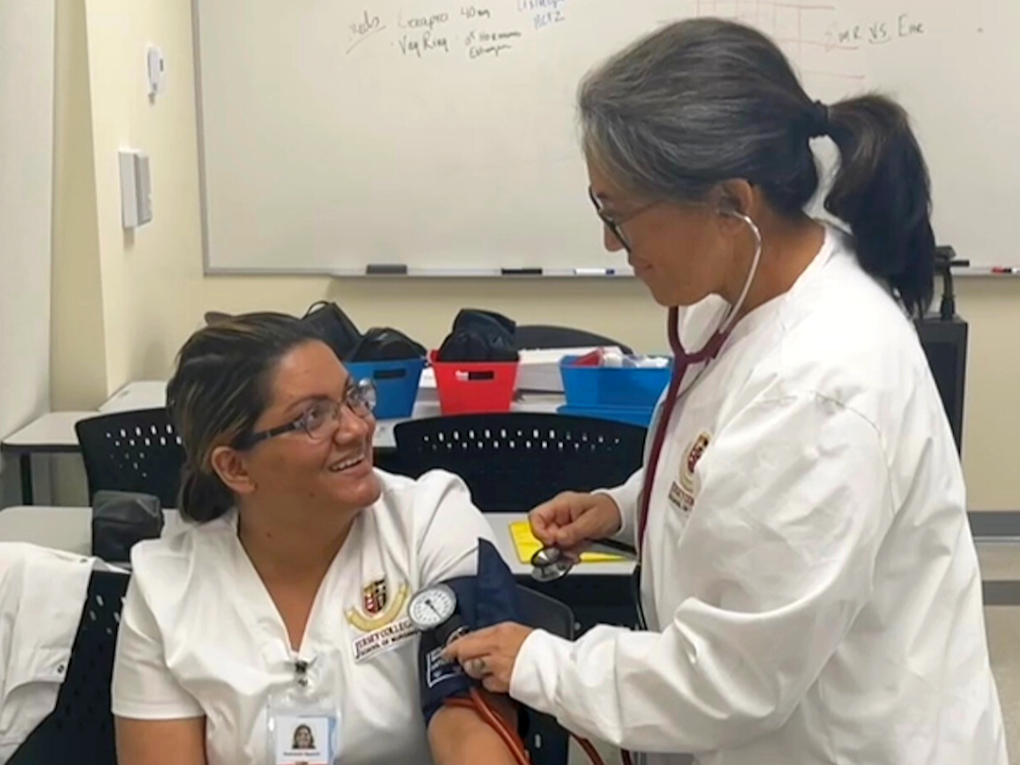
Students in Port Charlotte sharpen their nursing skills through hands-on practice in a lively classroom setting.
-

Jersey College's Tampa campus blends beautifully with its natural surroundings, offering a serene and inspiring setting for nursing students.
-
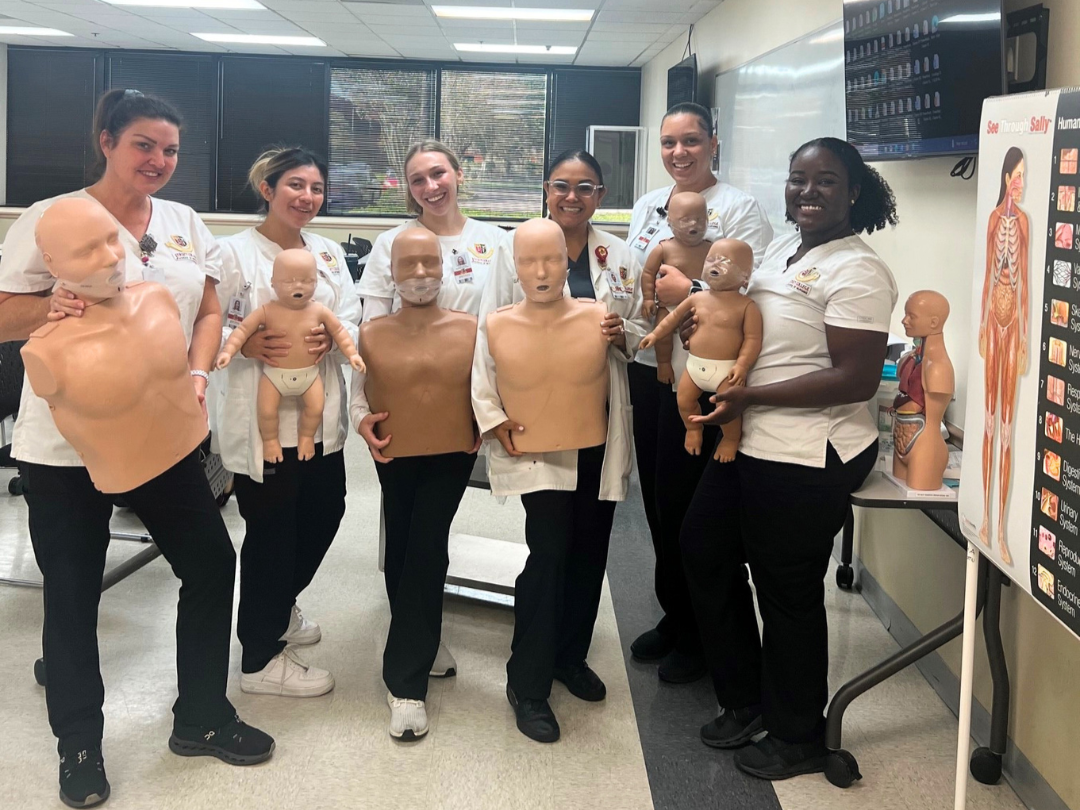
Nursing students in Tampa engage in a hands-on training session, learning essential lifesaving techniques under expert supervision.
-

Showcasing the lighter side of learning with a fun photo opportunity in the skills lab.
-
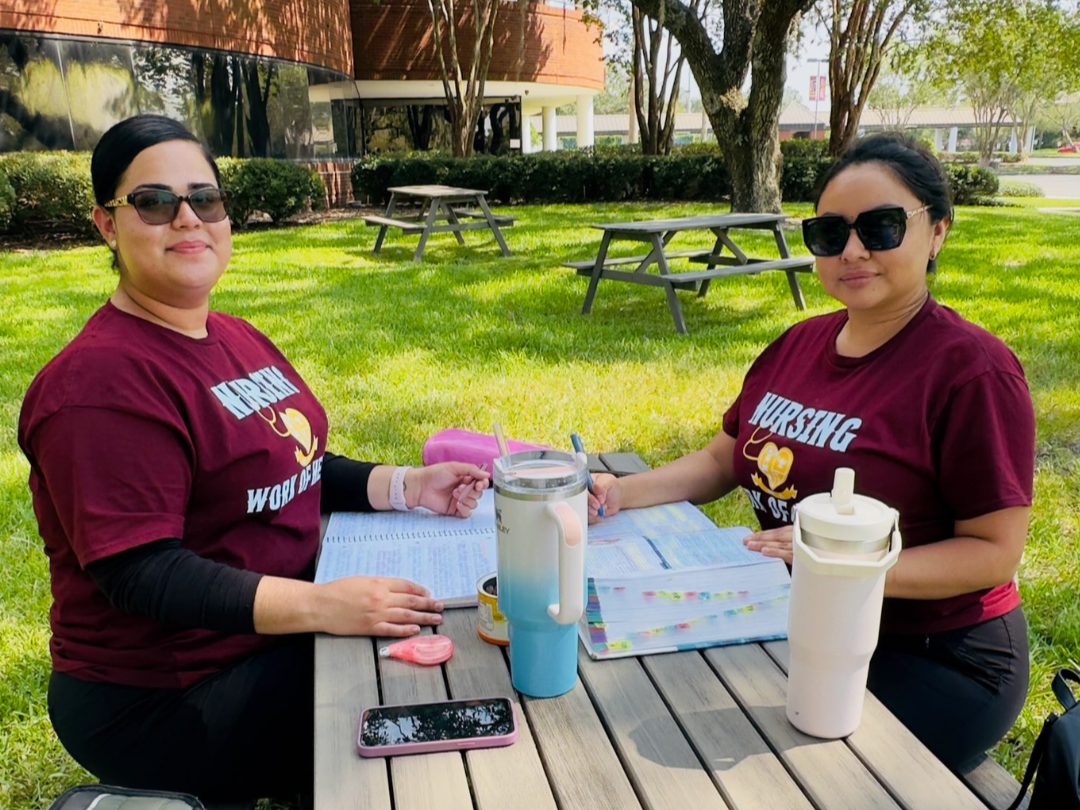
Students at Jersey College in Tampa enjoy a sunny study session outdoors, combining fresh air with focused learning.
-
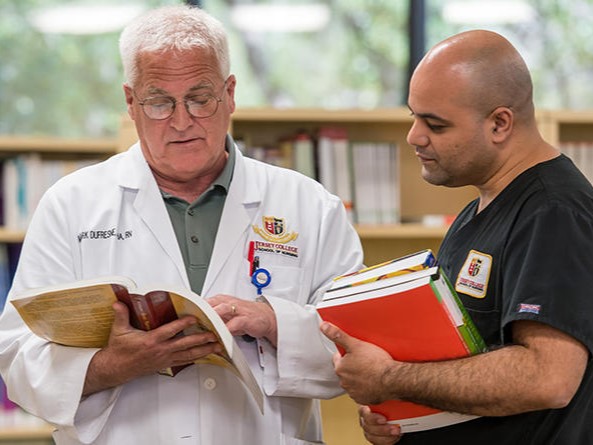
The facilities foster close collaboration between instructors and students.
-

Our Tampa campus provides modern facilities like this computer lab, where students utilize technology to enhance their learning and clinical skills.
-
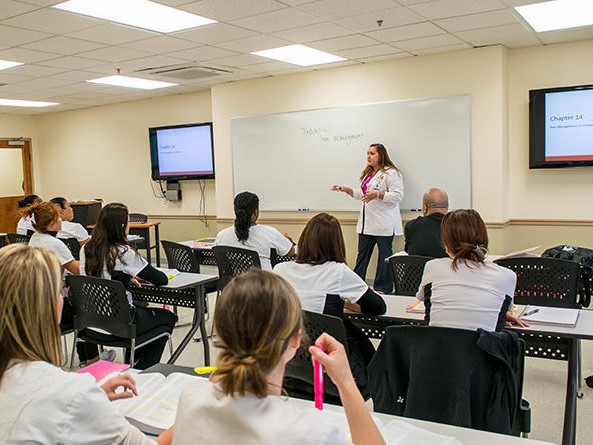
Engaged and focused, Jersey College students in Tampa participate in an interactive classroom session, gaining valuable knowledge for their nursing careers.
-

Jersey College students in Ewing dedicate themselves to mastering the essentials of nursing through rigorous study.
-

Nursing students and faculty utilize the library's resources for group studies and one-on-one tutoring, enhancing their learning experience.
-
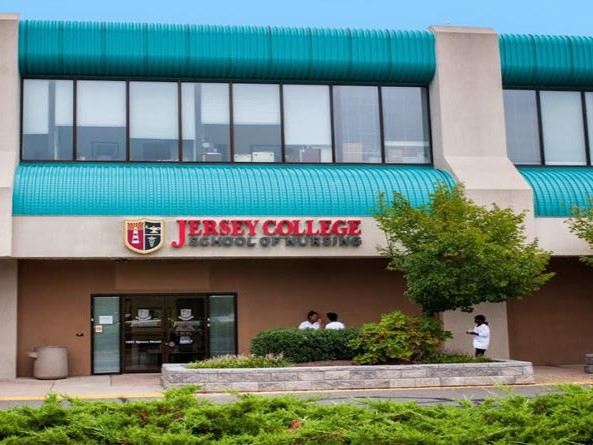
The Ewing campus welcomes future nurses with open doors, providing a nurturing environment for academic and professional growth.
-
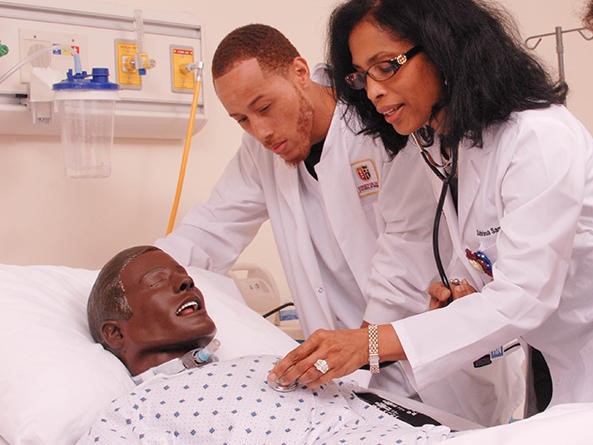
Jersey College students gain hands-on experience under the guidance of skilled instructors in the Ewing campus's advanced skills lab.
-

Engage, learn, and grow at Jersey College, where students thrive in a supportive academic environment.
-
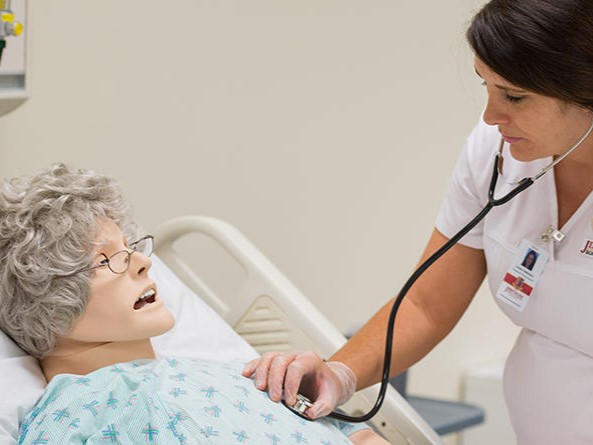
Experience realistic patient care in our skills lab, where each practice scenario is a step toward excellence in nursing.
-
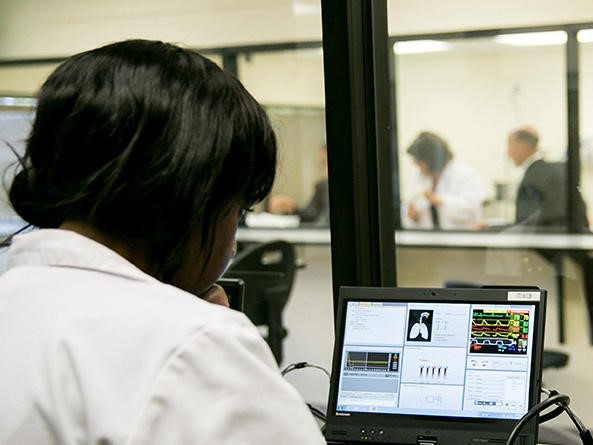
Our advanced facilities offer hands-on training with modern medical scenarios to prepare students for the real-world scenarios.
-
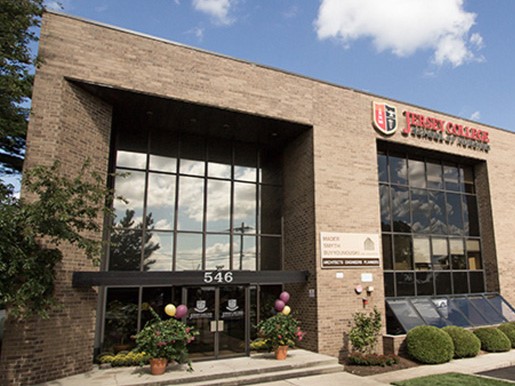
Welcome to Jersey College's Teterboro Campus, where excellence in nursing education begins.
-
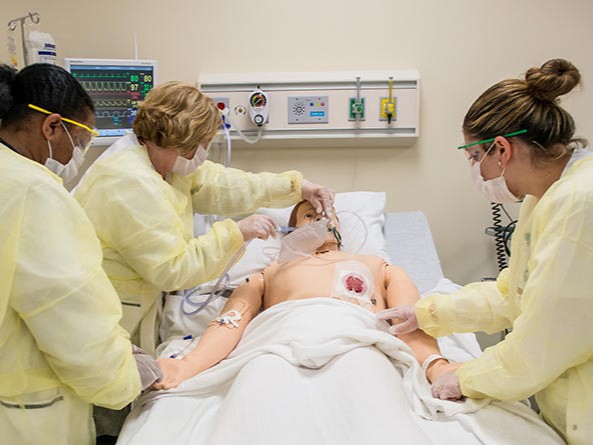
Jersey College students engage in a collaborative, hands-on training session, mastering emergency procedures in a supportive educational environment.
-

Moses Taylor Hospital — a cornerstone of community health services, offering advanced medical care and the home of the Jersey College Scranton campus.
-
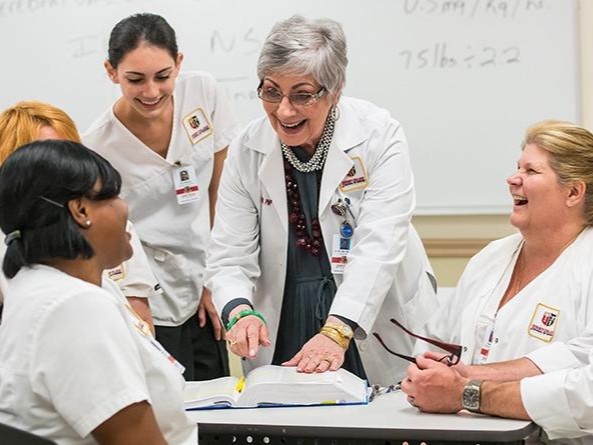
Engaging and dynamic learning in action at Jersey College, where our faculty bring lessons to life in a supportive classroom setting.
-
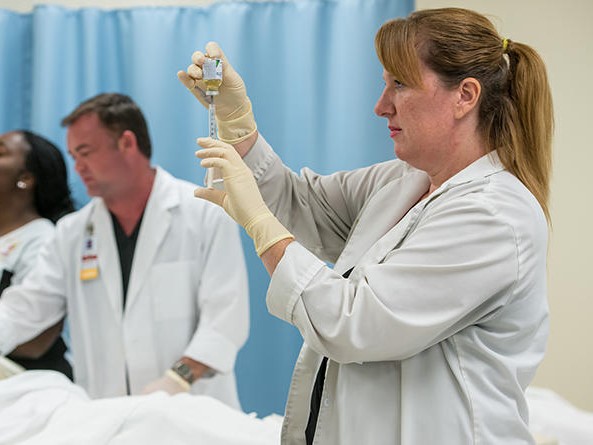
Hands-on learning at our Scranton campus, where students master practical nursing skills under supportive guidance.
-
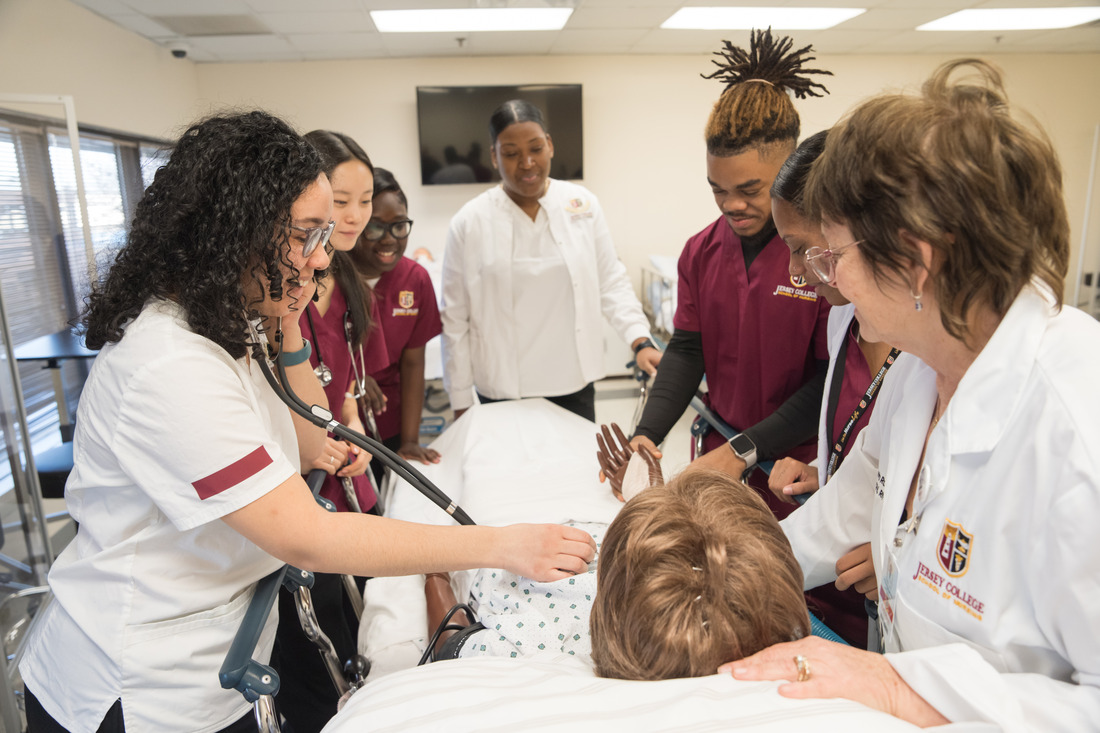
A group of nursing students and their professor practice bedside medical procedures on a patient simulator in a well-equipped skills lab.
-
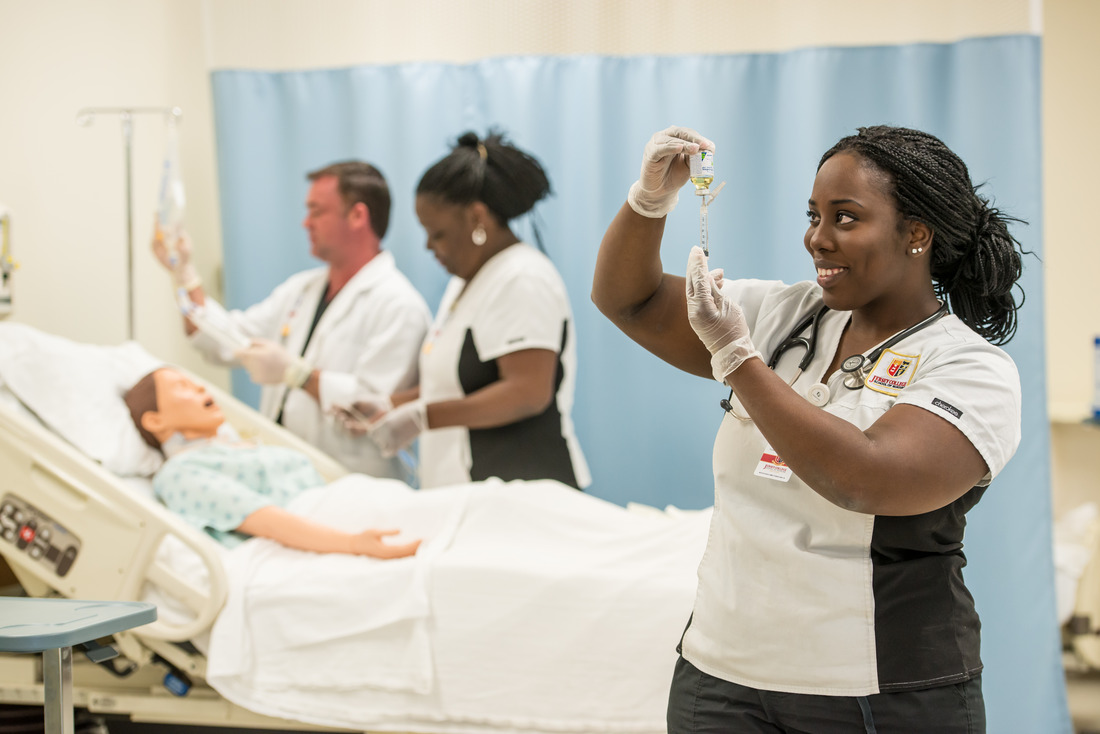
A student practices using a vial as two other students practice bedside nursing skills in an educational lab environment.
-

A Jersey College student poses in her nursing uniform with a hospital badge, stethoscope, and backpack.
-
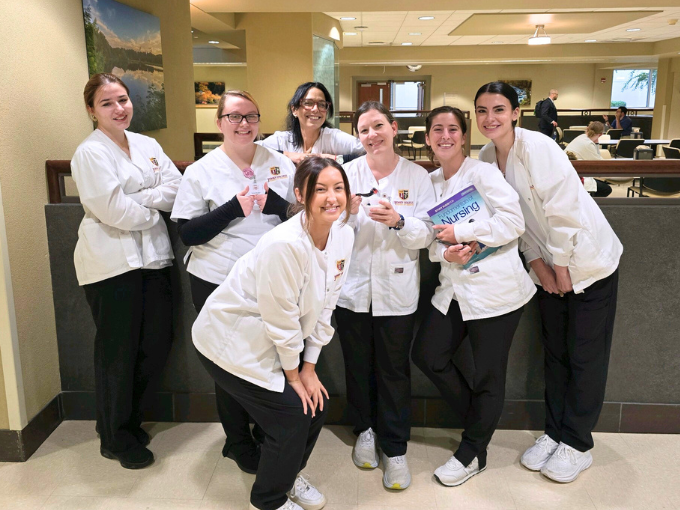
Cleveland students ready for a great day of learning!
-
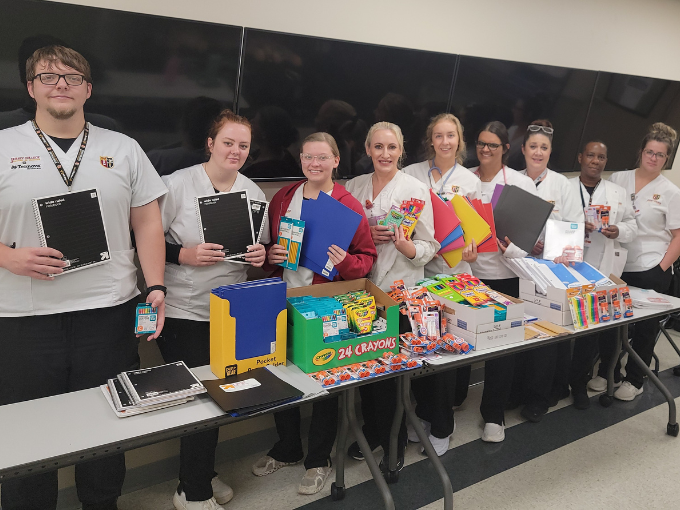
Cleveland students collecting school supplies to support local children.
-
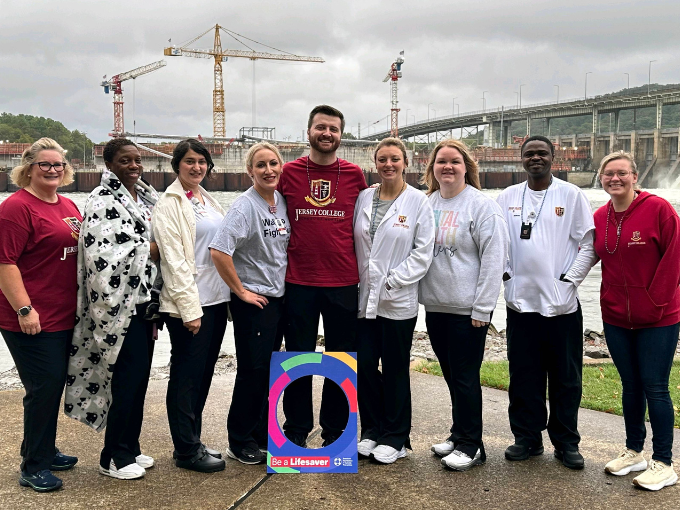
Cleveland Semester 3 Psych students assisted with the community Out of the Darkness suicide prevention walk!
-
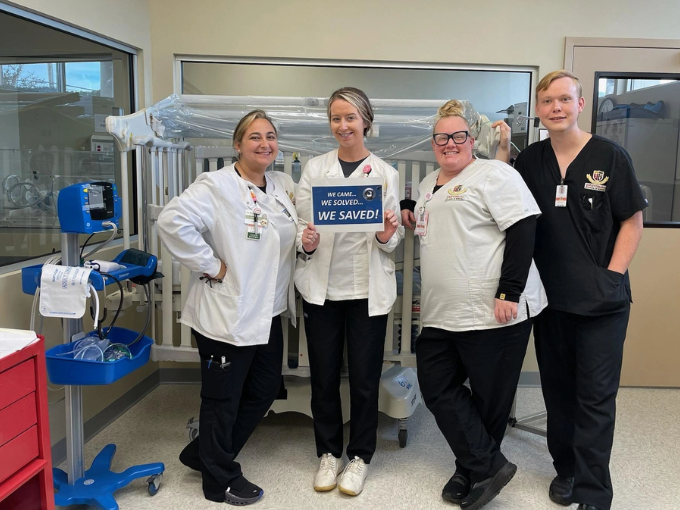
Our 4th semester students were able to put their combined learning into practice to successfully complete an Escape Room based on respiratory care of a pediatric client with asthma.
-
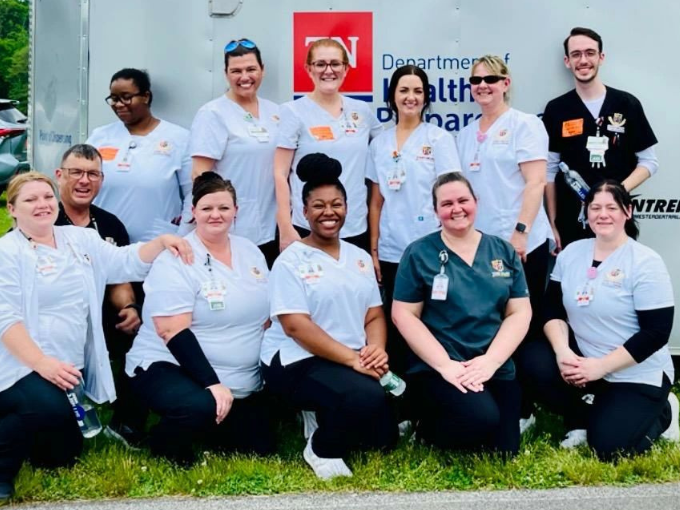
Our Cleveland students did a great job out in the community assisting at Healthy Horizons Day at Taylor Elementary!
-

Cleveland Campus ribbon cutting celebration with our nursing community!
-

“Jersey College Cleveland Campus represented themselves, their program, and all of their faculty and staff well during Panel Mock Interviews. During which, each student epitomized the Jersey College P.R.I.D.E. values extremely well.” – Dr. Franklin, Dean of Nursing
-
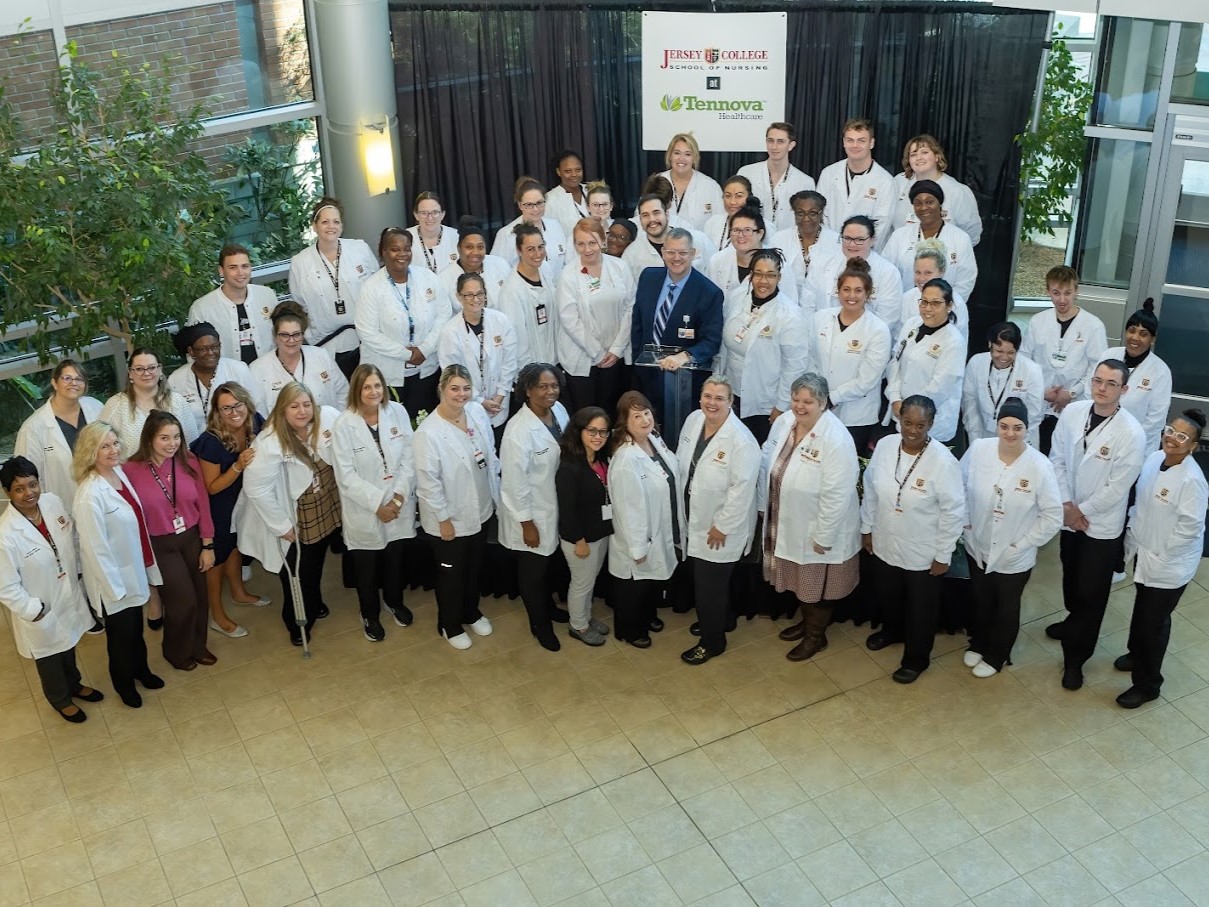
Our nursing school shines with a team of dedicated students and faculty, uniting for a vibrant group photo that captures the spirit of our community.
-
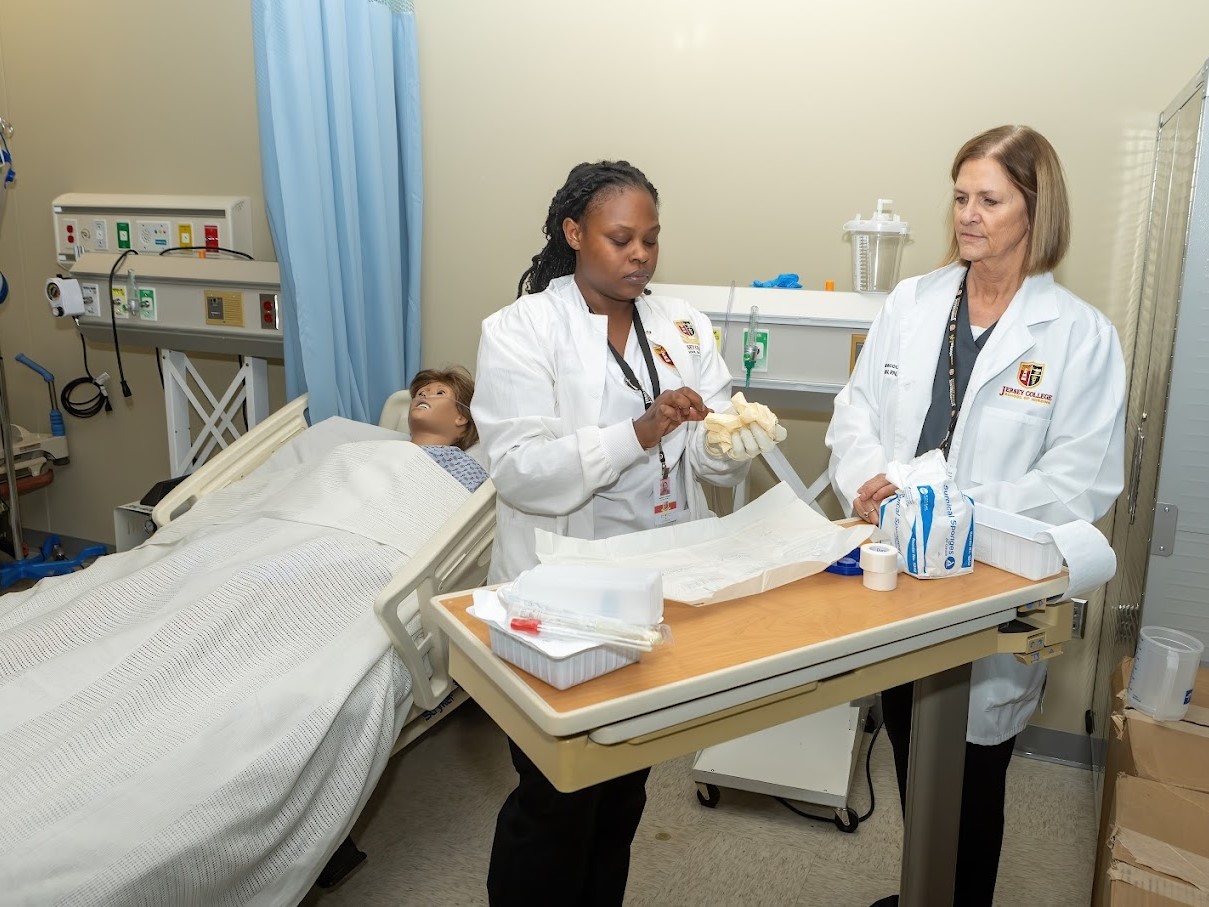
Master essential nursing skills at Jersey College, where education meets real-world practice.
-
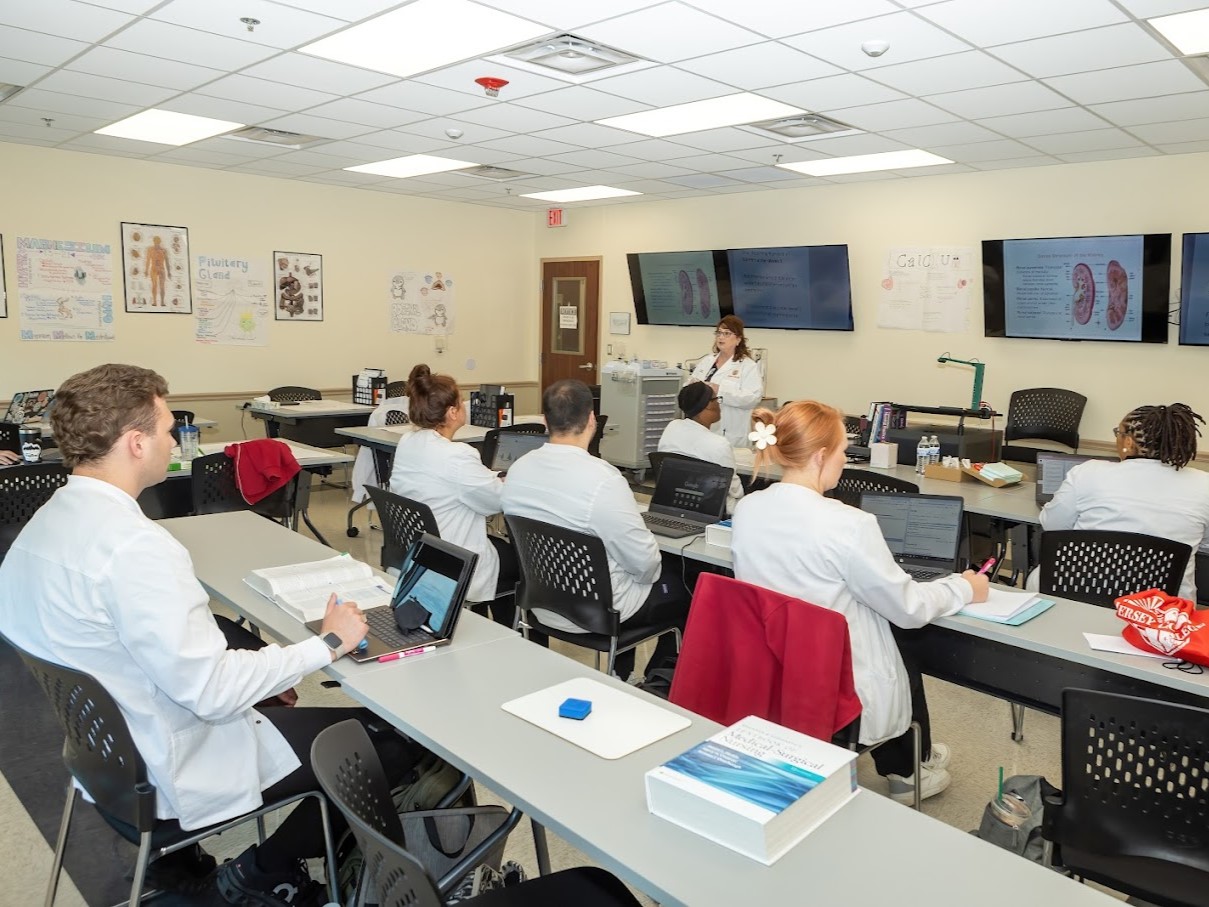
Empower your future with Jersey College's rigorous and engaging nursing programs.
-
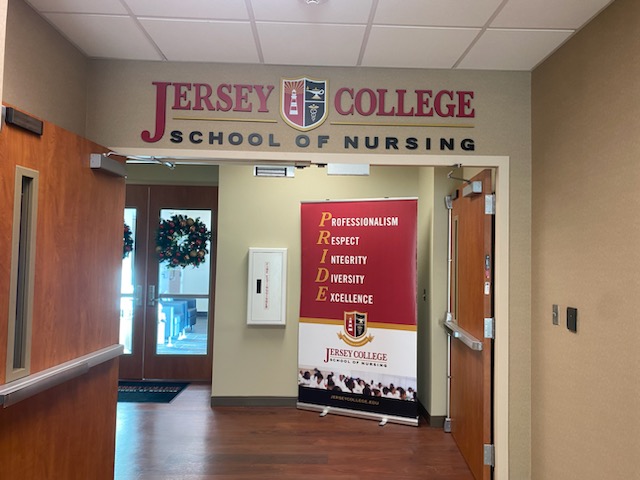
Step into a world of excellence at Jersey College's School of Nursing – where values meet vision.
-
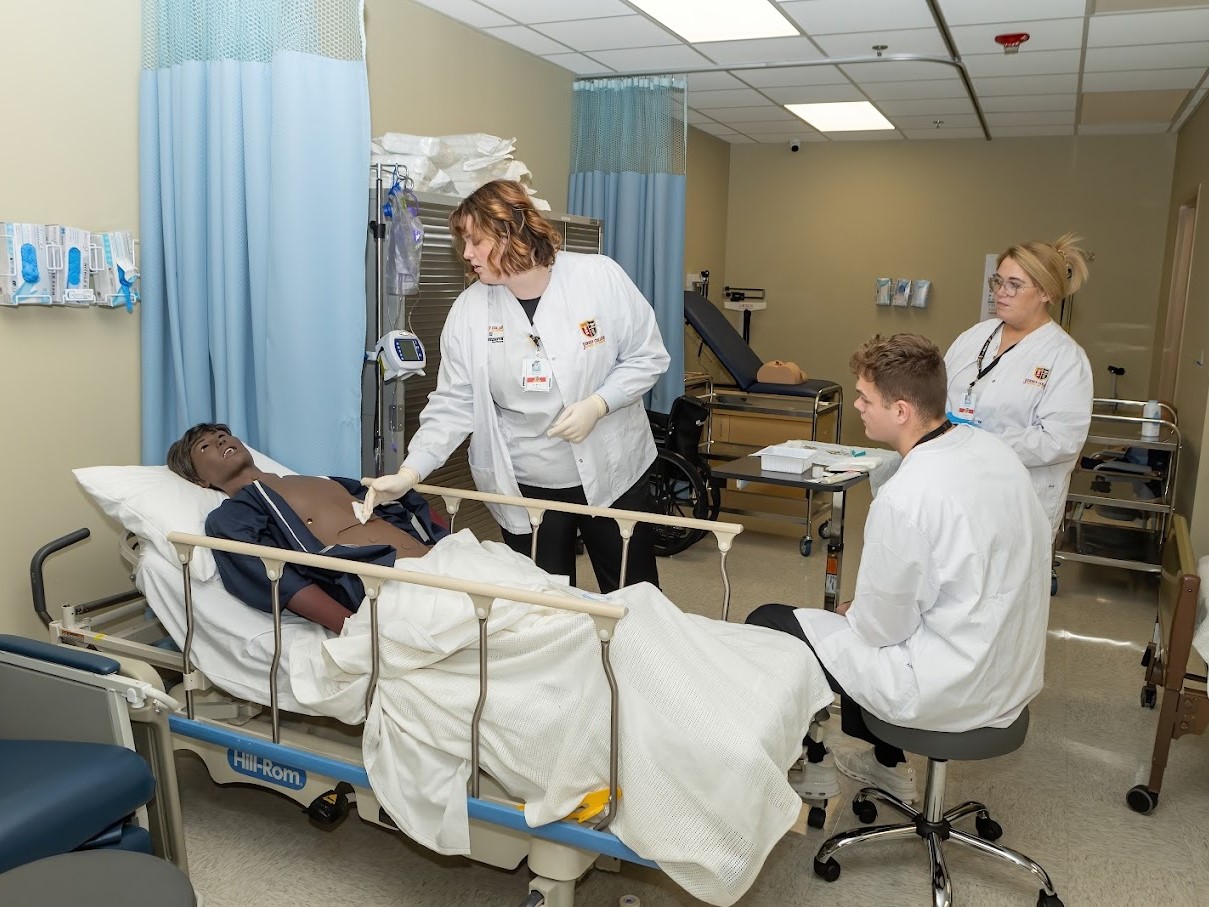
Jersey College students gear up in protective attire for a hands-on training session.
-

Tennova Healthcare -Turkey Creek Medical Center is home to our beautiful Knoxville campus.
Real World Nursing Training
Our affiliations with Flowers Hospital and other facilities can provide unique opportunities for hands-on clinical practice.
Learning in a hospital-Affiliated environment can enhance the opportunity to work directly with patients and healthcare professionals. This is a critical step when preparing for a career in nursing.
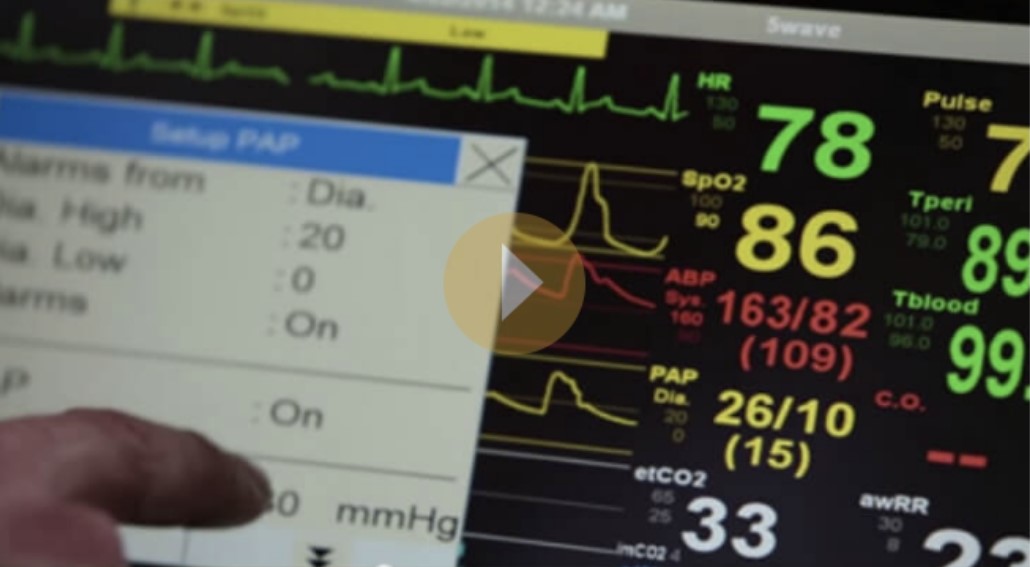
Real World Nursing Training with Mountain Vista Medical Center
Our affiliations with with Mountain Vista Medical Center and other facilities can provide unique opportunities for hands-on clinical practice.
Learning in a hospital-affiliated environment can enhance the opportunity to work directly with patients and healthcare professionals. This is a critical step when preparing for a career in Nursing.

Real World Nursing Training with Northwest Medical Center
Our affiliations with Northwest Medical Center and other facilities can provide unique opportunities for hands-on clinical practice.
Learning in a hospital-affiliated environment can enhance the opportunity to work directly with patients and healthcare professionals. This is a critical step when preparing for a career in nursing.

Real World Nursing Training with Tampa General Hospital
Our affiliations with Tampa General Hospital and other facilities can provide unique opportunities for hands-on clinical practice.
Learning in a hospital-affiliated environment can enhance the opportunity to work directly with patients and healthcare professionals. This is a critical step when preparing for a career in Nursing.

Real World Nursing Training with Largo Hospital
Our affiliations with Largo Hospital and other facilities can provide unique opportunities for hands-on clinical practice.
Learning in a hospital-affiliated environment can enhance the opportunity to work directly with patients and healthcare professionals. This is an important step when preparing for a career in nursing.

Real World Nursing Training with Melbourne Regional Medical Center
Our affiliations with Melbourne Regional Medical Center and other facilities can provide unique opportunities for hands-on clinical practice.
Learning in a hospital-Affiliated environment can enhance the opportunity to work directly with patients and healthcare professionals. This is a critical step when preparing for a career in Nursing.

Real World Nursing Training with Physicians Regional Medical Center
Our affiliations with Physicians Regional Medical Center and other facilities can provide unique opportunities for hands-on clinical practice.
Learning in a hospital-Affiliated environment can enhance the opportunity to work directly with patients and healthcare professionals. This is a critical step when preparing for a career in Nursing.

Real World Nursing Training with Advent Health
Our affiliation with Advent Health and other facilities can provide unique opportunities for hands-on clinical practice.
Learning in a hospital-affiliated environment can enhance the opportunity to work directly with patients and healthcare professionals. This is an important step when preparing for a career in Nursing.

Real World Nurse Training with Moses Taylor Hopsital
Our affiliations with Moses Taylor Hospital and other facilities can provide unique opportunities for hands-on clinical practice.
Learning in a hospital-affiliated environment can enhance the opportunity to work directly with patients and healthcare professionals. This is a critical step when preparing for a career in nursing.

Real World Nursing Training with WellSpan Education Center
Our affiliations with the WellSpan Education Center through an alliance with WellSpan Health can provide students with unique opportunities for hands-on clinical practice.
Learning in a hospital-based environment can enhance the opportunity to work directly with patients and healthcare professionals. This is a critical step when preparing for a career in nursing.

Real World Nursing Training with Vitruvian Health Bradley Medical Center
Our affiliations with Vitruvian Health Bradley Medical Center and other facilities can provide unique opportunities for hands-on clinical practice.
Learning in a hospital-affilaited environment can enhance the opportunity to work directly with patients and healthcare professionals. This is a critical step when preparing for a career in nursing.

Real World Nursing Training with Tennova Healthcare
Our affiliations with Tennova Healthcare and other facilities can provide unique opportunities for hands-on clinical practice.
Learning in a hospital-affiliated environment can enhance the opportunity to work directly with patients and healthcare professionals. This is a critical step when preparing for a career in Nursing.

Tuition and Financial Aid
Program Tuition & Fees*

DAY

EVENING







Fee

Verification Fee (per term)





* subject to change
† Please contact your Financial Aid Planner for scholarship terms and conditions'
The Cost of Attendance (“COA”) is a technical term utilized to provide an estimate of the total amount of a student’s educational expenses during their enrollment. The components of COA are: (x) tuition and fees (books, course materials, supplies, and equipment) (“Direct College Expenses”); and (y) an allowance for (i) transportation; (ii) miscellaneous personal expenses; (iii) living expenses (including food and housing costs); (iv) a professional license and (v) dependent care and/or disability accommodations, where necessary (“Life Expenses”). This website only provides information related to Direct College Expenses; it does not include Life Expenses.
Third-Party Financial Assistance Program
Students attending the Dothan Campus are eligible to apply for a $10,000 grant from Flowers Hospital toward their nursing education. Students will be awarded up to $5,000 per year* for two years to cover their institutional charges. (One year is equal to three semesters of enrollment.)
Third-Party Financial Assistance Program
Students attending the Knoxville Campus are eligible to apply for a $10,000 grant from Tennova Healthcare toward their nursing education. Students will be awarded up to $5,000 per year* for two years to cover their institutional charges. (One year is equal to three semesters of enrollment.)
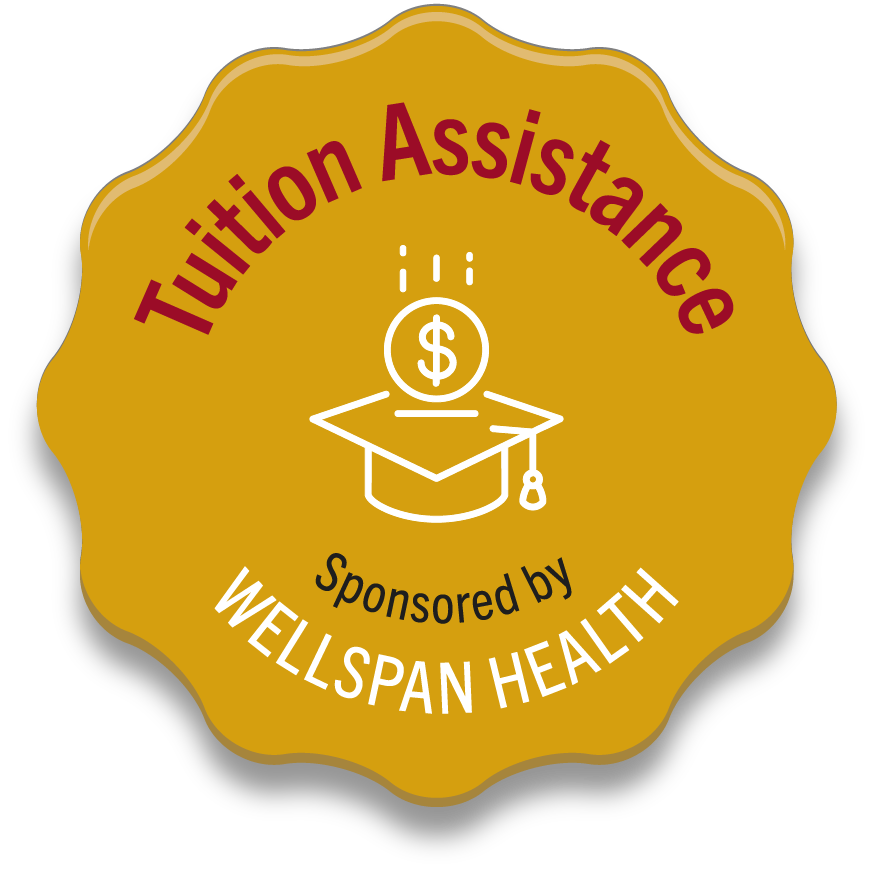
Third-Party Financial Assistance Program
Students attending the York Campus are eligible for several financial aid opportunities offered by WellSpan Health, including up to $10,000 through the Educational Assistance Program, up to $50,000 via the Employee Forgivable Loan Program, up to $5,250 through the Annual Employer Tuition Reimbursement, and up to $4,200 in scholarships from Jersey College.
Third-Party Financial Assistance Program
Students attending the Scranton Campus are eligible to apply for a $10,000 grant from Commonwealth Health toward their nursing education. Students will be awarded up to $5,000 per year* for two years to cover their institutional charges. (One year is equal to three semesters of enrollment.)
Third-Party Financial Assistance Program
Students attending the Naples Campus are eligible to apply for a $10,000 grant from Physicians Regional Healthcare toward their nursing education. Students will be awarded up to $5,000 per year* for two years to cover their institutional charges. (One year is equal to three semesters of enrollment.)
Third-Party Financial Assistance Program
Students attending the Tucson Campus are eligible to apply for a $10,000 grant from Northwest Healthcare toward their nursing education. Students will be awarded up to $5,000 per year for two years to cover their institutional charges. (One year is equal to three semesters of enrollment.)
How to Finance Your Education
At Jersey College, we understand that financing your education is a crucial part of your journey from LPN to RN. We're committed to helping you find the financial resources needed to achieve your career goals. We also encourage LPNs considering the Bridge program to view this as an investment in their future. The potential for higher earnings as an RN can offset the costs of education over time.
Remember, our Financial Aid team is here to support you every step of the way. We can assist students with:
- Obtaining federal student aid
- Applying for private scholarships, grants, and loans
- Reviewing other important considerations
Frequently Asked Questions
-
What career opportunities are available when leveling up from LPN to RN?
Transitioning from an LPN to an RN through Jersey College's Bridge program opens up a wealth of exciting career opportunities.
As an RN, you'll be equipped to work in diverse settings, including hospitals, clinics, long-term care facilities, schools, and community health centers. The skills and knowledge gained in this program will prepare you for a wide range of nursing specialties and higher pay opportunities.
The demand for RNs is robust and projected to grow significantly. According to the Bureau of Labor Statistics, employment of registered nurses is expected to increase by 6% from 2023 to 2033, faster than the average for all occupations. This growth is driven by several factors, including an aging population requiring more healthcare services, an increased emphasis on preventative care, and advancements in medical technology.
The aging baby boomer population is particularly impacting the demand for nurses. As this large demographic group requires more complex healthcare services, the need for skilled RNs continues to rise. This trend not only creates job security but also opens up opportunities in specialized areas such as geriatric care and chronic disease management.
RNs typically enjoy higher salaries compared to LPNs, with a median annual wage of $86,070 as of May 2023. Additionally, becoming an RN provides a solid foundation for further career advancement. Many RNs go on to pursue advanced degrees, such as Bachelor of Science in Nursing (BSN) or Master of Science in Nursing (MSN), opening doors to roles in nursing leadership, education, or advanced practice.
Upon completion of the program and successfully passing the NCLEX-RN, you'll be prepared to enter the workforce as a competent, compassionate, and confident RN. Whether you choose to specialize in critical care, occupational health, informatics, or explore emerging fields like travel nursing, your RN qualification will provide a strong foundation for a rewarding and dynamic career in healthcare.
-
How long is the Bridge program?
The length of time for your nursing program depends on many factors including your track, schedule, and entry option.
The coursework in the Traditional RN and the LPN to RN Bridge tracks of the Professional Nursing program may range from 15-33 months depending on your track, schedule, and entry option (i.e., advanced placement or generic).
Please reach out to an Admissions Representative to discuss timing expectations for your unique situation.
Program length is subject to change and is determined based on a number of factors, including, but not limited to: (i) pace of completion, (ii) quantity of credits taken per term, (iii) repeats of coursework, and (iv) leaves.
-
What do I need to apply? Are transfer credits accepted?
At Jersey College, we pride ourselves on our ambitious student body. We look forward to your application. At a high level, the process for gaining admission to Jersey College includes these steps:
1. Complete the application for admissions. Speak to an Admissions Representative to get started.
2.Meet minimum requirements such as presenting proof of high school education or its equivalent (as defined by the US DOE) and proof of US citizenship or a permanent resident card (aka green card).
3. Participate in interviews with administration and/or faculty members and obtain a recommendation for admission.
4. Receive your letter of acceptance.
5. Complete your enrollment which includes steps such as executing an Enrollment Agreement, making an advance program deposit (which will be applied against the total tuition and fees of the program), and passing a background check.
6. Determine your sequence of courses.
7. Attend a comprehensive orientation session.
8. Begin your NurseLife!
All students who wish to transfer from an external institution must meet all admission requirements at Jersey College. Credit-bearing coursework from a college or university accredited by an agency recognized by the U.S. Department of Education may be eligible for transfer credit at Jersey College. Coursework may not be transferred into the Practical Nursing program. For information on the transferability of credits, visit our Transfer Portal.
Learn more about the Admissions process and the Transfer of Credit policy at Jersey College, or Request Admissions Information now.
-
Is Jersey College accredited?
Jersey College is accredited by the Council on Occupational Education, an accrediting agency recognized by the United States Department of Education. For campus and program specific accreditation, licenses, and approvals, please visit our Accreditations & Licenses page.
-
What career opportunities are available when leveling up from LPN to RN?
Transitioning from an LPN to an RN through Jersey College's Bridge program opens up a wealth of exciting career opportunities.
As an RN, you'll be equipped to work in diverse settings, including hospitals, clinics, long-term care facilities, schools, and community health centers. The skills and knowledge gained in this program will prepare you for a wide range of nursing specialties and higher pay opportunities.
The demand for RNs is robust and projected to grow significantly. According to the Bureau of Labor Statistics, employment of registered nurses is expected to increase by 6% from 2023 to 2033, faster than the average for all occupations. This growth is driven by several factors, including an aging population requiring more healthcare services, an increased emphasis on preventative care, and advancements in medical technology.
The aging baby boomer population is particularly impacting the demand for nurses. As this large demographic group requires more complex healthcare services, the need for skilled RNs continues to rise. This trend not only creates job security but also opens up opportunities in specialized areas such as geriatric care and chronic disease management.
RNs typically enjoy higher salaries compared to LPNs, with a median annual wage of $86,070 as of May 2023. Additionally, becoming an RN provides a solid foundation for further career advancement. Many RNs go on to pursue advanced degrees, such as Bachelor of Science in Nursing (BSN) or Master of Science in Nursing (MSN), opening doors to roles in nursing leadership, education, or advanced practice.
Upon completion of the program and successfully passing the NCLEX-RN, you'll be prepared to enter the workforce as a competent, compassionate, and confident RN. Whether you choose to specialize in critical care, occupational health, informatics, or explore emerging fields like travel nursing, your RN qualification will provide a strong foundation for a rewarding and dynamic career in healthcare.
-
How long is the Bridge program?
The length of time for your nursing program depends on many factors including your track, schedule, and entry option.
The coursework in the Traditional RN and the LPN to RN Bridge tracks of the Professional Nursing program may range from 15-33 months depending on your track, schedule, and entry option (i.e., advanced placement or generic).
Please reach out to an Admissions Representative to discuss timing expectations for your unique situation.
Program length is subject to change and is determined based on a number of factors, including, but not limited to: (i) pace of completion, (ii) quantity of credits taken per term, (iii) repeats of coursework, and (iv) leaves.
-
What do I need to apply? Are transfer credits accepted?
At Jersey College, we pride ourselves on our ambitious student body. We look forward to your application. At a high level, the process for gaining admission to Jersey College includes these steps:
1. Complete the application for admissions. Speak to an Admissions Representative to get started.
2.Meet minimum requirements such as presenting proof of high school education or its equivalent (as defined by the US DOE) and proof of US citizenship or a permanent resident card (aka green card).
3. Participate in interviews with administration and/or faculty members and obtain a recommendation for admission.
4. Receive your letter of acceptance.
5. Complete your enrollment which includes steps such as executing an Enrollment Agreement, making an advance program deposit (which will be applied against the total tuition and fees of the program), and passing a background check.
6. Determine your sequence of courses.
7. Attend a comprehensive orientation session.
8. Begin your NurseLife!
All students who wish to transfer from an external institution must meet all admission requirements at Jersey College. Credit-bearing coursework from a college or university accredited by an agency recognized by the U.S. Department of Education may be eligible for transfer credit at Jersey College. Coursework may not be transferred into the Practical Nursing program. For information on the transferability of credits, visit our Transfer Portal.
Learn more about the Admissions process and the Transfer of Credit policy at Jersey College, or Request Admissions Information now.
-
How long does it take to commute from Enterprise, Daleville, and other nearby areas?
The following directions provide the quickest path from the indicated city center to our campus. Keep in mind that travel times and routes can be influenced by traffic conditions and ongoing construction. Additionally, please be aware that certain routes may include tolls. For a customized route to Jersey College, we recommend using the provided links.
The drive from central Dothan to campus is about 10-20 minutes.
The commute from Midland City, northwest of Dothan, typically takes about 15 minutes. Get directions from Midland City, AL to Jersey College »
The commute from Slocomb, southwest of Dothan, takes 20-30 minutes. Get directions from Slocomb to Jersey College »
The commute from Daleville, near Fort Novosel, takes about 25 minutes. Get directions from Daleville, AL to Jersey College »
The commute from Enterprise typically takes about 35 minutes. Get directions from Enterprise, AL to Jersey College »
The commute from Ozark typically takes about 30 minutes. Get directions from Ozark, AL to Jersey College »
The commute from Ashford typically takes about 25 minutes. Get directions from Ashford, AL to Jersey College »
-
Is there free parking on campus and easy access to public transportation?
Yes, convenient parking is available and is free for all students.
Public transit is limited in the Dothan, AL region. Students may choose to utilize Uber or Lyft to commute to campus. The Wiregrass Transit Authority also offers Dial-a-Ride and Ride-to-Work services.
-
Is Jersey College accredited?
Jersey College is accredited by the Council on Occupational Education, an accrediting agency recognized by the United States Department of Education. For campus and program specific accreditation, licenses, and approvals, please visit our Accreditations & Licenses page.
-
What career opportunities are available when leveling up from LPN to RN?
Transitioning from an LPN to an RN through Jersey College's Bridge program opens up a wealth of exciting career opportunities.
As an RN, you'll be equipped to work in diverse settings, including hospitals, clinics, long-term care facilities, schools, and community health centers. The skills and knowledge gained in this program will prepare you for a wide range of nursing specialties and higher pay opportunities.
The demand for RNs is robust and projected to grow significantly. According to the Bureau of Labor Statistics, employment of registered nurses is expected to increase by 6% from 2023 to 2033, faster than the average for all occupations. This growth is driven by several factors, including an aging population requiring more healthcare services, an increased emphasis on preventative care, and advancements in medical technology.
The aging baby boomer population is particularly impacting the demand for nurses. As this large demographic group requires more complex healthcare services, the need for skilled RNs continues to rise. This trend not only creates job security but also opens up opportunities in specialized areas such as geriatric care and chronic disease management.
RNs typically enjoy higher salaries compared to LPNs, with a median annual wage of $86,070 as of May 2023. Additionally, becoming an RN provides a solid foundation for further career advancement. Many RNs go on to pursue advanced degrees, such as Bachelor of Science in Nursing (BSN) or Master of Science in Nursing (MSN), opening doors to roles in nursing leadership, education, or advanced practice.
Upon completion of the program and successfully passing the NCLEX-RN, you'll be prepared to enter the workforce as a competent, compassionate, and confident RN. Whether you choose to specialize in critical care, occupational health, informatics, or explore emerging fields like travel nursing, your RN qualification will provide a strong foundation for a rewarding and dynamic career in healthcare.
-
How long is the Bridge program?
The length of time for your nursing program depends on many factors including your track, schedule, and entry option.
The coursework in the Traditional RN and the LPN to RN Bridge tracks of the Professional Nursing program may range from 15-33 months depending on your track, schedule, and entry option (i.e., advanced placement or generic).
Please reach out to an Admissions Representative to discuss timing expectations for your unique situation.
Program length is subject to change and is determined based on a number of factors, including, but not limited to: (i) pace of completion, (ii) quantity of credits taken per term, (iii) repeats of coursework, and (iv) leaves.
-
What do I need to apply? Are transfer credits accepted?
At Jersey College, we pride ourselves on our ambitious student body. We look forward to your application. At a high level, the process for gaining admission to Jersey College includes these steps:
1. Complete the application for admissions. Speak to an Admissions Representative to get started.
2.Meet minimum requirements such as presenting proof of high school education or its equivalent (as defined by the US DOE) and proof of US citizenship or a permanent resident card (aka green card).
3. Participate in interviews with administration and/or faculty members and obtain a recommendation for admission.
4. Receive your letter of acceptance.
5. Complete your enrollment which includes steps such as executing an Enrollment Agreement, making an advance program deposit (which will be applied against the total tuition and fees of the program), and passing a background check.
6. Determine your sequence of courses.
7. Attend a comprehensive orientation session.
8. Begin your NurseLife!
All students who wish to transfer from an external institution must meet all admission requirements at Jersey College. Credit-bearing coursework from a college or university accredited by an agency recognized by the U.S. Department of Education may be eligible for transfer credit at Jersey College. Coursework may not be transferred into the Practical Nursing program. For information on the transferability of credits, visit our Transfer Portal.
Learn more about the Admissions process and the Transfer of Credit policy at Jersey College, or Request Admissions Information now.
-
How long does it take to commute from Tempe, Scottsdale, Phoenix, and other nearby areas?
The following directions provide the quickest path from the indicated city center to our campus. Keep in mind that travel times and routes can be influenced by traffic conditions and ongoing construction. Additionally, please be aware that certain routes may include tolls. For a customized route to Jersey College, we recommend using the provided links.
The commute from Tempe typically takes about 30 minutes. Get directions from Tempe, AZ to Jersey College »
The commute from Scottsdale typically takes about 30 minutes. Get directions from Scottsdale, AZ to Jersey College »
The commute from Phoenix, AZ to Jersey College Mesa typically takes about 35 minutes. Get directions from Phoenix, AZ to Jersey College »
-
Is there free parking on campus and easy access to public transportation?
Yes, convenient parking is available and is free for all students.
Public transit is limited in the Mesa, AZ region. Valley Metro operates buses, rail, shuttles, and streetcars throughout the region, and recommends several commuter resources such as carpooling services.
Students may choose to utilize Uber or Lyft to commute to campus.
-
Is Jersey College accredited?
Jersey College is accredited by the Council on Occupational Education, an accrediting agency recognized by the United States Department of Education. For campus and program specific accreditation, licenses, and approvals, please visit our Accreditations & Licenses page.
-
What career opportunities are available when leveling up from LPN to RN?
Transitioning from an LPN to an RN through Jersey College's Bridge program opens up a wealth of exciting career opportunities.
As an RN, you'll be equipped to work in diverse settings, including hospitals, clinics, long-term care facilities, schools, and community health centers. The skills and knowledge gained in this program will prepare you for a wide range of nursing specialties and higher pay opportunities.
The demand for RNs is robust and projected to grow significantly. According to the Bureau of Labor Statistics, employment of registered nurses is expected to increase by 6% from 2023 to 2033, faster than the average for all occupations. This growth is driven by several factors, including an aging population requiring more healthcare services, an increased emphasis on preventative care, and advancements in medical technology.
The aging baby boomer population is particularly impacting the demand for nurses. As this large demographic group requires more complex healthcare services, the need for skilled RNs continues to rise. This trend not only creates job security but also opens up opportunities in specialized areas such as geriatric care and chronic disease management.
RNs typically enjoy higher salaries compared to LPNs, with a median annual wage of $86,070 as of May 2023. Additionally, becoming an RN provides a solid foundation for further career advancement. Many RNs go on to pursue advanced degrees, such as Bachelor of Science in Nursing (BSN) or Master of Science in Nursing (MSN), opening doors to roles in nursing leadership, education, or advanced practice.
Upon completion of the program and successfully passing the NCLEX-RN, you'll be prepared to enter the workforce as a competent, compassionate, and confident RN. Whether you choose to specialize in critical care, occupational health, informatics, or explore emerging fields like travel nursing, your RN qualification will provide a strong foundation for a rewarding and dynamic career in healthcare.
-
How long is the Bridge program?
The length of time for your nursing program depends on many factors including your track, schedule, and entry option.
The coursework in the Traditional RN and the LPN to RN Bridge tracks of the Professional Nursing program may range from 15-33 months depending on your track, schedule, and entry option (i.e., advanced placement or generic).
Please reach out to an Admissions Representative to discuss timing expectations for your unique situation.
Program length is subject to change and is determined based on a number of factors, including, but not limited to: (i) pace of completion, (ii) quantity of credits taken per term, (iii) repeats of coursework, and (iv) leaves.
-
What do I need to apply? Are transfer credits accepted?
At Jersey College, we pride ourselves on our ambitious student body. We look forward to your application. At a high level, the process for gaining admission to Jersey College includes these steps:
1. Complete the application for admissions. Speak to an Admissions Representative to get started.
2.Meet minimum requirements such as presenting proof of high school education or its equivalent (as defined by the US DOE) and proof of US citizenship or a permanent resident card (aka green card).
3. Participate in interviews with administration and/or faculty members and obtain a recommendation for admission.
4. Receive your letter of acceptance.
5. Complete your enrollment which includes steps such as executing an Enrollment Agreement, making an advance program deposit (which will be applied against the total tuition and fees of the program), and passing a background check.
6. Determine your sequence of courses.
7. Attend a comprehensive orientation session.
8. Begin your NurseLife!
All students who wish to transfer from an external institution must meet all admission requirements at Jersey College. Credit-bearing coursework from a college or university accredited by an agency recognized by the U.S. Department of Education may be eligible for transfer credit at Jersey College. Coursework may not be transferred into the Practical Nursing program. For information on the transferability of credits, visit our Transfer Portal.
Learn more about the Admissions process and the Transfer of Credit policy at Jersey College, or Request Admissions Information now.
-
How long does it take to commute from Sahuarita, Marana, and other nearby areas?
The following directions provide the quickest path from the indicated city center to our campus. Keep in mind that travel times and routes can be influenced by traffic conditions and ongoing construction. Additionally, please be aware that certain routes may include tolls. For a customized route to Jersey College, we recommend using the provided links.
The commute from Sahuarita typically takes about 25 minutes. Get directions from Sahuarita, AZ to Jersey College »
The commute from Marana typically takes about 35 minutes. Get directions from Marana, AZ to Jersey College »
-
Is there free parking on campus and easy access to public transportation?
Yes, convenient parking is available and is free for all students.
Students in the Tucson, AZ region have access to public transportation options that lead them to the Jersey College campus. Notable bus routes servicing this area include Sun Tran routes 61 and 412.
Students may choose toutilize Uber or Lyft to commute to campus.
-
Is Jersey College accredited?
Jersey College is accredited by the Council on Occupational Education, an accrediting agency recognized by the United States Department of Education. For campus and program specific accreditation, licenses, and approvals, please visit our Accreditations & Licenses page.
-
What career opportunities are available when leveling up from LPN to RN?
Transitioning from an LPN to an RN through Jersey College's Bridge program opens up a wealth of exciting career opportunities.
As an RN, you'll be equipped to work in diverse settings, including hospitals, clinics, long-term care facilities, schools, and community health centers. The skills and knowledge gained in this program will prepare you for a wide range of nursing specialties and higher pay opportunities.
The demand for RNs is robust and projected to grow significantly. According to the Bureau of Labor Statistics, employment of registered nurses is expected to increase by 6% from 2023 to 2033, faster than the average for all occupations. This growth is driven by several factors, including an aging population requiring more healthcare services, an increased emphasis on preventative care, and advancements in medical technology.
The aging baby boomer population is particularly impacting the demand for nurses. As this large demographic group requires more complex healthcare services, the need for skilled RNs continues to rise. This trend not only creates job security but also opens up opportunities in specialized areas such as geriatric care and chronic disease management.
RNs typically enjoy higher salaries compared to LPNs, with a median annual wage of $86,070 as of May 2023. Additionally, becoming an RN provides a solid foundation for further career advancement. Many RNs go on to pursue advanced degrees, such as Bachelor of Science in Nursing (BSN) or Master of Science in Nursing (MSN), opening doors to roles in nursing leadership, education, or advanced practice.
Upon completion of the program and successfully passing the NCLEX-RN, you'll be prepared to enter the workforce as a competent, compassionate, and confident RN. Whether you choose to specialize in critical care, occupational health, informatics, or explore emerging fields like travel nursing, your RN qualification will provide a strong foundation for a rewarding and dynamic career in healthcare.
-
How long is the Bridge program?
The length of time for your nursing program depends on many factors including your track, schedule, and entry option.
The coursework in the Traditional RN and the LPN to RN Bridge tracks of the Professional Nursing program may range from 15-33 months depending on your track, schedule, and entry option (i.e., advanced placement or generic).
Please reach out to an Admissions Representative to discuss timing expectations for your unique situation.
Program length is subject to change and is determined based on a number of factors, including, but not limited to: (i) pace of completion, (ii) quantity of credits taken per term, (iii) repeats of coursework, and (iv) leaves.
-
What do I need to apply? Are transfer credits accepted?
At Jersey College, we pride ourselves on our ambitious student body. We look forward to your application. At a high level, the process for gaining admission to Jersey College includes these steps:
1. Complete the application for admissions. Speak to an Admissions Representative to get started.
2.Meet minimum requirements such as presenting proof of high school education or its equivalent (as defined by the US DOE) and proof of US citizenship or a permanent resident card (aka green card).
3. Participate in interviews with administration and/or faculty members and obtain a recommendation for admission.
4. Receive your letter of acceptance.
5. Complete your enrollment which includes steps such as executing an Enrollment Agreement, making an advance program deposit (which will be applied against the total tuition and fees of the program), and passing a background check.
6. Determine your sequence of courses.
7. Attend a comprehensive orientation session.
8. Begin your NurseLife!
All students who wish to transfer from an external institution must meet all admission requirements at Jersey College. Credit-bearing coursework from a college or university accredited by an agency recognized by the U.S. Department of Education may be eligible for transfer credit at Jersey College. Coursework may not be transferred into the Practical Nursing program. For information on the transferability of credits, visit our Transfer Portal.
Learn more about the Admissions process and the Transfer of Credit policy at Jersey College, or Request Admissions Information now.
-
How long does it take to commute from Spring Hill, Ocala, and other nearby areas?
The following directions provide the quickest path from the indicated city center to our campus. Keep in mind that travel times and routes can be influenced by traffic conditions and ongoing construction. Additionally, please be aware that certain routes may include tolls. For a customized route to Jersey College, we recommend using the provided links.
The commute from Spring Hill typically takes about 15 minutes. Get directions from Spring Hill, FL to Jersey College »
The commute from Ocala typically takes about 1 hour 15 minutes. Get directions from Ocala, FL to Jersey College »
The commute from New Port Richey typically takes about 45 minutes. Get directions from New Port Richey, FL to Jersey College » *
Get personalized directions to Jersey College »
*This recommended route has tolls.
-
Is there free parking on campus and easy access to public transportation?
Yes, convenient parking is available and is free for all students.
Students in the Brookville, FL region have access to public transportation options that lead them to the Jersey College campus. Notable bus routes servicing this area include "TheBus" - Purple Route.
Students may choose to utilize Uber or Lyft to commute to campus.
-
Is Jersey College accredited?
Jersey College is accredited by the Council on Occupational Education, an accrediting agency recognized by the United States Department of Education. For campus and program specific accreditation, licenses, and approvals, please visit our Accreditations & Licenses page.
-
What career opportunities are available when leveling up from LPN to RN?
Transitioning from an LPN to an RN through Jersey College's Bridge program opens up a wealth of exciting career opportunities.
As an RN, you'll be equipped to work in diverse settings, including hospitals, clinics, long-term care facilities, schools, and community health centers. The skills and knowledge gained in this program will prepare you for a wide range of nursing specialties and higher pay opportunities.
The demand for RNs is robust and projected to grow significantly. According to the Bureau of Labor Statistics, employment of registered nurses is expected to increase by 6% from 2023 to 2033, faster than the average for all occupations. This growth is driven by several factors, including an aging population requiring more healthcare services, an increased emphasis on preventative care, and advancements in medical technology.
The aging baby boomer population is particularly impacting the demand for nurses. As this large demographic group requires more complex healthcare services, the need for skilled RNs continues to rise. This trend not only creates job security but also opens up opportunities in specialized areas such as geriatric care and chronic disease management.
RNs typically enjoy higher salaries compared to LPNs, with a median annual wage of $86,070 as of May 2023. Additionally, becoming an RN provides a solid foundation for further career advancement. Many RNs go on to pursue advanced degrees, such as Bachelor of Science in Nursing (BSN) or Master of Science in Nursing (MSN), opening doors to roles in nursing leadership, education, or advanced practice.
Upon completion of the program and successfully passing the NCLEX-RN, you'll be prepared to enter the workforce as a competent, compassionate, and confident RN. Whether you choose to specialize in critical care, occupational health, informatics, or explore emerging fields like travel nursing, your RN qualification will provide a strong foundation for a rewarding and dynamic career in healthcare.
-
How long is the Bridge program?
The length of time for your nursing program depends on many factors including your track, schedule, and entry option.
The coursework in the Traditional RN and the LPN to RN Bridge tracks of the Professional Nursing program may range from 15-33 months depending on your track, schedule, and entry option (i.e., advanced placement or generic).
Please reach out to an Admissions Representative to discuss timing expectations for your unique situation.
Program length is subject to change and is determined based on a number of factors, including, but not limited to: (i) pace of completion, (ii) quantity of credits taken per term, (iii) repeats of coursework, and (iv) leaves.
-
What do I need to apply? Are transfer credits accepted?
At Jersey College, we pride ourselves on our ambitious student body. We look forward to your application. At a high level, the process for gaining admission to Jersey College includes these steps:
1. Complete the application for admissions. Speak to an Admissions Representative to get started.
2.Meet minimum requirements such as presenting proof of high school education or its equivalent (as defined by the US DOE) and proof of US citizenship or a permanent resident card (aka green card).
3. Participate in interviews with administration and/or faculty members and obtain a recommendation for admission.
4. Receive your letter of acceptance.
5. Complete your enrollment which includes steps such as executing an Enrollment Agreement, making an advance program deposit (which will be applied against the total tuition and fees of the program), and passing a background check.
6. Determine your sequence of courses.
7. Attend a comprehensive orientation session.
8. Begin your NurseLife!
All students who wish to transfer from an external institution must meet all admission requirements at Jersey College. Credit-bearing coursework from a college or university accredited by an agency recognized by the U.S. Department of Education may be eligible for transfer credit at Jersey College. Coursework may not be transferred into the Practical Nursing program. For information on the transferability of credits, visit our Transfer Portal.
Learn more about the Admissions process and the Transfer of Credit policy at Jersey College, or Request Admissions Information now.
-
How long does it take to commute from Oakland Park, Hollywood, and other nearby areas?
The following directions provide the quickest path from the indicated city center to our campus. Keep in mind that travel times and routes can be influenced by traffic conditions and ongoing construction. Additionally, please be aware that certain routes may include tolls. For a customized route to Jersey College, we recommend using the provided links.
The commute from Oakland Park, FL typically takes about 30 minutes. Get directions from Oakland Park, FL to Jersey College »
The commute from Hollywood typically takes about 40 minutes.* Get directions from Hollywood, FL to Jersey College »
The commute from Fort Lauderdale typically takes about 25 minutes. Get directions from Fort Lauderdale, FL to Jersey College »
The commute from Pompano Beach typically takes about 35 minutes.* Get directions from Pompano Beach, FL to Jersey College »
The commute from Deerfield Beach typically takes about 35 minutes. Get directions from Deerfield Beach, FL to Jersey College »
Get personalized directions to Jersey College »
*These recommended routes have tolls.
-
Is there free parking on campus and easy access to public transportation?
Yes, convenient parking is available and is free for all students.
Students in the Fort Lauderdale, FL region have access to public transportation options that lead them to the Jersey College campus. Notable bus routes servicing this area include the Boward County Transit (BCT) bus number 72 and 02.
Students may choose to utilize Uber or Lyft to commute to campus.
-
Is Jersey College accredited?
Jersey College is accredited by the Council on Occupational Education, an accrediting agency recognized by the United States Department of Education. For campus and program specific accreditation, licenses, and approvals, please visit our Accreditations & Licenses page.
-
What career opportunities are available when leveling up from LPN to RN?
Transitioning from an LPN to an RN through Jersey College's Bridge program opens up a wealth of exciting career opportunities.
As an RN, you'll be equipped to work in diverse settings, including hospitals, clinics, long-term care facilities, schools, and community health centers. The skills and knowledge gained in this program will prepare you for a wide range of nursing specialties and higher pay opportunities.
The demand for RNs is robust and projected to grow significantly. According to the Bureau of Labor Statistics, employment of registered nurses is expected to increase by 6% from 2023 to 2033, faster than the average for all occupations. This growth is driven by several factors, including an aging population requiring more healthcare services, an increased emphasis on preventative care, and advancements in medical technology.
The aging baby boomer population is particularly impacting the demand for nurses. As this large demographic group requires more complex healthcare services, the need for skilled RNs continues to rise. This trend not only creates job security but also opens up opportunities in specialized areas such as geriatric care and chronic disease management.
RNs typically enjoy higher salaries compared to LPNs, with a median annual wage of $86,070 as of May 2023. Additionally, becoming an RN provides a solid foundation for further career advancement. Many RNs go on to pursue advanced degrees, such as Bachelor of Science in Nursing (BSN) or Master of Science in Nursing (MSN), opening doors to roles in nursing leadership, education, or advanced practice.
Upon completion of the program and successfully passing the NCLEX-RN, you'll be prepared to enter the workforce as a competent, compassionate, and confident RN. Whether you choose to specialize in critical care, occupational health, informatics, or explore emerging fields like travel nursing, your RN qualification will provide a strong foundation for a rewarding and dynamic career in healthcare.
-
How long is the Bridge program?
The length of time for your nursing program depends on many factors including your track, schedule, and entry option.
The coursework in the Traditional RN and the LPN to RN Bridge tracks of the Professional Nursing program may range from 15-33 months depending on your track, schedule, and entry option (i.e., advanced placement or generic).
Please reach out to an Admissions Representative to discuss timing expectations for your unique situation.
Program length is subject to change and is determined based on a number of factors, including, but not limited to: (i) pace of completion, (ii) quantity of credits taken per term, (iii) repeats of coursework, and (iv) leaves.
-
What do I need to apply? Are transfer credits accepted?
At Jersey College, we pride ourselves on our ambitious student body. We look forward to your application. At a high level, the process for gaining admission to Jersey College includes these steps:
1. Complete the application for admissions. Speak to an Admissions Representative to get started.
2.Meet minimum requirements such as presenting proof of high school education or its equivalent (as defined by the US DOE) and proof of US citizenship or a permanent resident card (aka green card).
3. Participate in interviews with administration and/or faculty members and obtain a recommendation for admission.
4. Receive your letter of acceptance.
5. Complete your enrollment which includes steps such as executing an Enrollment Agreement, making an advance program deposit (which will be applied against the total tuition and fees of the program), and passing a background check.
6. Determine your sequence of courses.
7. Attend a comprehensive orientation session.
8. Begin your NurseLife!
All students who wish to transfer from an external institution must meet all admission requirements at Jersey College. Credit-bearing coursework from a college or university accredited by an agency recognized by the U.S. Department of Education may be eligible for transfer credit at Jersey College. Coursework may not be transferred into the Practical Nursing program. For information on the transferability of credits, visit our Transfer Portal.
Learn more about the Admissions process and the Transfer of Credit policy at Jersey College, or Request Admissions Information now.
-
How long does it take to commute from St. Petersburg, Clearwater, and other nearby areas?
The following directions provide the quickest path from the indicated city center to our campus. Keep in mind that travel times and routes can be influenced by traffic conditions and ongoing construction. Additionally, please be aware that certain routes may include tolls. For a customized route to Jersey College, we recommend using the provided links.
The commute from St. Petersburg typically takes about 35 minutes. Get directions from St. Petersburg, FL to Jersey College »
The commute from Clearwater typically takes about 15 minutes. Get directions from Clearwater, FL to Jersey College »
The commute from Seminole typically takes about 15 minutes. Get directions from Seminole, FL to Jersey College »
-
Is Jersey College accredited?
Jersey College is accredited by the Council on Occupational Education, an accrediting agency recognized by the United States Department of Education. For campus and program specific accreditation, licenses, and approvals, please visit our Accreditations & Licenses page.
-
What career opportunities are available when leveling up from LPN to RN?
Transitioning from an LPN to an RN through Jersey College's Bridge program opens up a wealth of exciting career opportunities.
As an RN, you'll be equipped to work in diverse settings, including hospitals, clinics, long-term care facilities, schools, and community health centers. The skills and knowledge gained in this program will prepare you for a wide range of nursing specialties and higher pay opportunities.
The demand for RNs is robust and projected to grow significantly. According to the Bureau of Labor Statistics, employment of registered nurses is expected to increase by 6% from 2023 to 2033, faster than the average for all occupations. This growth is driven by several factors, including an aging population requiring more healthcare services, an increased emphasis on preventative care, and advancements in medical technology.
The aging baby boomer population is particularly impacting the demand for nurses. As this large demographic group requires more complex healthcare services, the need for skilled RNs continues to rise. This trend not only creates job security but also opens up opportunities in specialized areas such as geriatric care and chronic disease management.
RNs typically enjoy higher salaries compared to LPNs, with a median annual wage of $86,070 as of May 2023. Additionally, becoming an RN provides a solid foundation for further career advancement. Many RNs go on to pursue advanced degrees, such as Bachelor of Science in Nursing (BSN) or Master of Science in Nursing (MSN), opening doors to roles in nursing leadership, education, or advanced practice.
Upon completion of the program and successfully passing the NCLEX-RN, you'll be prepared to enter the workforce as a competent, compassionate, and confident RN. Whether you choose to specialize in critical care, occupational health, informatics, or explore emerging fields like travel nursing, your RN qualification will provide a strong foundation for a rewarding and dynamic career in healthcare.
-
How long is the Bridge program?
The length of time for your nursing program depends on many factors including your track, schedule, and entry option.
The coursework in the Traditional RN and the LPN to RN Bridge tracks of the Professional Nursing program may range from 15-33 months depending on your track, schedule, and entry option (i.e., advanced placement or generic).
Please reach out to an Admissions Representative to discuss timing expectations for your unique situation.
Program length is subject to change and is determined based on a number of factors, including, but not limited to: (i) pace of completion, (ii) quantity of credits taken per term, (iii) repeats of coursework, and (iv) leaves.
-
What do I need to apply? Are transfer credits accepted?
At Jersey College, we pride ourselves on our ambitious student body. We look forward to your application. At a high level, the process for gaining admission to Jersey College includes these steps:
1. Complete the application for admissions. Speak to an Admissions Representative to get started.
2.Meet minimum requirements such as presenting proof of high school education or its equivalent (as defined by the US DOE) and proof of US citizenship or a permanent resident card (aka green card).
3. Participate in interviews with administration and/or faculty members and obtain a recommendation for admission.
4. Receive your letter of acceptance.
5. Complete your enrollment which includes steps such as executing an Enrollment Agreement, making an advance program deposit (which will be applied against the total tuition and fees of the program), and passing a background check.
6. Determine your sequence of courses.
7. Attend a comprehensive orientation session.
8. Begin your NurseLife!
All students who wish to transfer from an external institution must meet all admission requirements at Jersey College. Credit-bearing coursework from a college or university accredited by an agency recognized by the U.S. Department of Education may be eligible for transfer credit at Jersey College. Coursework may not be transferred into the Practical Nursing program. For information on the transferability of credits, visit our Transfer Portal.
Learn more about the Admissions process and the Transfer of Credit policy at Jersey College, or Request Admissions Information now.
-
How long does it take to commute from Palm Bay, Rockledge, and other nearby areas?
The following directions provide the quickest path from the indicated city center to our campus. Keep in mind that travel times and routes can be influenced by traffic conditions and ongoing construction. Additionally, please be aware that certain routes may include tolls. For a customized route to Jersey College, we recommend using the provided links.
The commute from Palm Bay typically takes about 20 minutes. Get directions from Palm Bay, FL to Jersey College »
The commute from Rockledge typically takes about 30 minutes. Get directions from Rockledge, FL to Jersey College »
The commute from Orlando typically takes about 1 hour 10 minutes. Get directions from Orlando, FL to Jersey College »
-
Is there free parking on campus and easy access to public transportation?
Yes, convenient parking is available and is free for all students.
Students in the Melbourne, FL region have access to public transportation options that lead them to the Jersey College campus. Notable bus routes servicing this area include the Space Coast Area Transit bus number 28.
Students may choose to utilize Uber or Lyft to commute to campus.
-
Is Jersey College accredited?
Jersey College is accredited by the Council on Occupational Education, an accrediting agency recognized by the United States Department of Education. For campus and program specific accreditation, licenses, and approvals, please visit our Accreditations & Licenses page.
-
What career opportunities are available when leveling up from LPN to RN?
Transitioning from an LPN to an RN through Jersey College's Bridge program opens up a wealth of exciting career opportunities.
As an RN, you'll be equipped to work in diverse settings, including hospitals, clinics, long-term care facilities, schools, and community health centers. The skills and knowledge gained in this program will prepare you for a wide range of nursing specialties and higher pay opportunities.
The demand for RNs is robust and projected to grow significantly. According to the Bureau of Labor Statistics, employment of registered nurses is expected to increase by 6% from 2023 to 2033, faster than the average for all occupations. This growth is driven by several factors, including an aging population requiring more healthcare services, an increased emphasis on preventative care, and advancements in medical technology.
The aging baby boomer population is particularly impacting the demand for nurses. As this large demographic group requires more complex healthcare services, the need for skilled RNs continues to rise. This trend not only creates job security but also opens up opportunities in specialized areas such as geriatric care and chronic disease management.
RNs typically enjoy higher salaries compared to LPNs, with a median annual wage of $86,070 as of May 2023. Additionally, becoming an RN provides a solid foundation for further career advancement. Many RNs go on to pursue advanced degrees, such as Bachelor of Science in Nursing (BSN) or Master of Science in Nursing (MSN), opening doors to roles in nursing leadership, education, or advanced practice.
Upon completion of the program and successfully passing the NCLEX-RN, you'll be prepared to enter the workforce as a competent, compassionate, and confident RN. Whether you choose to specialize in critical care, occupational health, informatics, or explore emerging fields like travel nursing, your RN qualification will provide a strong foundation for a rewarding and dynamic career in healthcare.
-
How long is the Bridge program?
The length of time for your nursing program depends on many factors including your track, schedule, and entry option.
The coursework in the Traditional RN and the LPN to RN Bridge tracks of the Professional Nursing program may range from 15-33 months depending on your track, schedule, and entry option (i.e., advanced placement or generic).
Please reach out to an Admissions Representative to discuss timing expectations for your unique situation.
Program length is subject to change and is determined based on a number of factors, including, but not limited to: (i) pace of completion, (ii) quantity of credits taken per term, (iii) repeats of coursework, and (iv) leaves.
-
What do I need to apply? Are transfer credits accepted?
At Jersey College, we pride ourselves on our ambitious student body. We look forward to your application. At a high level, the process for gaining admission to Jersey College includes these steps:
1. Complete the application for admissions. Speak to an Admissions Representative to get started.
2.Meet minimum requirements such as presenting proof of high school education or its equivalent (as defined by the US DOE) and proof of US citizenship or a permanent resident card (aka green card).
3. Participate in interviews with administration and/or faculty members and obtain a recommendation for admission.
4. Receive your letter of acceptance.
5. Complete your enrollment which includes steps such as executing an Enrollment Agreement, making an advance program deposit (which will be applied against the total tuition and fees of the program), and passing a background check.
6. Determine your sequence of courses.
7. Attend a comprehensive orientation session.
8. Begin your NurseLife!
All students who wish to transfer from an external institution must meet all admission requirements at Jersey College. Credit-bearing coursework from a college or university accredited by an agency recognized by the U.S. Department of Education may be eligible for transfer credit at Jersey College. Coursework may not be transferred into the Practical Nursing program. For information on the transferability of credits, visit our Transfer Portal.
Learn more about the Admissions process and the Transfer of Credit policy at Jersey College, or Request Admissions Information now.
-
How long does it take to commute from Fort Myers and other nearby areas?
The following directions provide the quickest path from the indicated city center to our campus. Keep in mind that travel times and routes can be influenced by traffic conditions and ongoing construction. Additionally, please be aware that certain routes may include tolls. For a customized route to Jersey College, we recommend using the provided links.
The commute from Fort Myers typically takes about 45 minutes. Get from Fort Myers, FL to Jersey College »
The commute from Lehigh Acres typically takes about 1 hour. Get directions from Lehigh Acres, FL to Jersey College »
-
Is there free parking on campus and easy access to public transportation?
Yes, convenient parking is available and is free for all students.
Students in the Naples, FL region have access to public transportation options that lead them to the Jersey College campus. Notable bus routes servicing this area include the Collier Area Transit (CAT) bus numbers 17 and 21.
Students may choose to utilize Uber or Lyft to commute to campus.
-
Is Jersey College accredited?
Jersey College is accredited by the Council on Occupational Education, an accrediting agency recognized by the United States Department of Education. For campus and program specific accreditation, licenses, and approvals, please visit our Accreditations & Licenses page.
-
What career opportunities are available when leveling up from LPN to RN?
Transitioning from an LPN to an RN through Jersey College's Bridge program opens up a wealth of exciting career opportunities.
As an RN, you'll be equipped to work in diverse settings, including hospitals, clinics, long-term care facilities, schools, and community health centers. The skills and knowledge gained in this program will prepare you for a wide range of nursing specialties and higher pay opportunities.
The demand for RNs is robust and projected to grow significantly. According to the Bureau of Labor Statistics, employment of registered nurses is expected to increase by 6% from 2023 to 2033, faster than the average for all occupations. This growth is driven by several factors, including an aging population requiring more healthcare services, an increased emphasis on preventative care, and advancements in medical technology.
The aging baby boomer population is particularly impacting the demand for nurses. As this large demographic group requires more complex healthcare services, the need for skilled RNs continues to rise. This trend not only creates job security but also opens up opportunities in specialized areas such as geriatric care and chronic disease management.
RNs typically enjoy higher salaries compared to LPNs, with a median annual wage of $86,070 as of May 2023. Additionally, becoming an RN provides a solid foundation for further career advancement. Many RNs go on to pursue advanced degrees, such as Bachelor of Science in Nursing (BSN) or Master of Science in Nursing (MSN), opening doors to roles in nursing leadership, education, or advanced practice.
Upon completion of the program and successfully passing the NCLEX-RN, you'll be prepared to enter the workforce as a competent, compassionate, and confident RN. Whether you choose to specialize in critical care, occupational health, informatics, or explore emerging fields like travel nursing, your RN qualification will provide a strong foundation for a rewarding and dynamic career in healthcare.
-
How long is the Bridge program?
The length of time for your nursing program depends on many factors including your track, schedule, and entry option.
The coursework in the Traditional RN and the LPN to RN Bridge tracks of the Professional Nursing program may range from 15-33 months depending on your track, schedule, and entry option (i.e., advanced placement or generic).
Please reach out to an Admissions Representative to discuss timing expectations for your unique situation.
Program length is subject to change and is determined based on a number of factors, including, but not limited to: (i) pace of completion, (ii) quantity of credits taken per term, (iii) repeats of coursework, and (iv) leaves.
-
What do I need to apply? Are transfer credits accepted?
At Jersey College, we pride ourselves on our ambitious student body. We look forward to your application. At a high level, the process for gaining admission to Jersey College includes these steps:
1. Complete the application for admissions. Speak to an Admissions Representative to get started.
2.Meet minimum requirements such as presenting proof of high school education or its equivalent (as defined by the US DOE) and proof of US citizenship or a permanent resident card (aka green card).
3. Participate in interviews with administration and/or faculty members and obtain a recommendation for admission.
4. Receive your letter of acceptance.
5. Complete your enrollment which includes steps such as executing an Enrollment Agreement, making an advance program deposit (which will be applied against the total tuition and fees of the program), and passing a background check.
6. Determine your sequence of courses.
7. Attend a comprehensive orientation session.
8. Begin your NurseLife!
All students who wish to transfer from an external institution must meet all admission requirements at Jersey College. Credit-bearing coursework from a college or university accredited by an agency recognized by the U.S. Department of Education may be eligible for transfer credit at Jersey College. Coursework may not be transferred into the Practical Nursing program. For information on the transferability of credits, visit our Transfer Portal.
Learn more about the Admissions process and the Transfer of Credit policy at Jersey College, or Request Admissions Information now.
-
How long does it take to commute from Venice, FL and other nearby areas?
The following directions provide the quickest path from the indicated city center to our campus. Keep in mind that travel times and routes can be influenced by traffic conditions and ongoing construction. Additionally, please be aware that certain routes may include tolls. For a customized route to Jersey College, we recommend using the provided links.
The commute from Venice, FL, typically takes about 45 minutes. Get directions from Venice, FL to Jersey College »
The commute from Fort Myers, FL, typically takes about 45 minutes. Get directions from Fort Myers, FL to Jersey College »
-
Is there free parking on campus and easy access to public transportation?
Yes, convenient parking is available and is free for all students.
Public transit is limited in the Port Charlotte, FL region. However, Charlotte County Transit offers a shuttle service in the area that is available for college students.
Students may choose to utilize Uber or Lyft to commute to campus.
-
Is Jersey College accredited?
Jersey College is accredited by the Council on Occupational Education, an accrediting agency recognized by the United States Department of Education. For campus and program specific accreditation, licenses, and approvals, please visit our Accreditations & Licenses page.
-
What career opportunities are available when leveling up from LPN to RN?
Transitioning from an LPN to an RN through Jersey College's Bridge program opens up a wealth of exciting career opportunities.
As an RN, you'll be equipped to work in diverse settings, including hospitals, clinics, long-term care facilities, schools, and community health centers. The skills and knowledge gained in this program will prepare you for a wide range of nursing specialties and higher pay opportunities.
The demand for RNs is robust and projected to grow significantly. According to the Bureau of Labor Statistics, employment of registered nurses is expected to increase by 6% from 2023 to 2033, faster than the average for all occupations. This growth is driven by several factors, including an aging population requiring more healthcare services, an increased emphasis on preventative care, and advancements in medical technology.
The aging baby boomer population is particularly impacting the demand for nurses. As this large demographic group requires more complex healthcare services, the need for skilled RNs continues to rise. This trend not only creates job security but also opens up opportunities in specialized areas such as geriatric care and chronic disease management.
RNs typically enjoy higher salaries compared to LPNs, with a median annual wage of $86,070 as of May 2023. Additionally, becoming an RN provides a solid foundation for further career advancement. Many RNs go on to pursue advanced degrees, such as Bachelor of Science in Nursing (BSN) or Master of Science in Nursing (MSN), opening doors to roles in nursing leadership, education, or advanced practice.
Upon completion of the program and successfully passing the NCLEX-RN, you'll be prepared to enter the workforce as a competent, compassionate, and confident RN. Whether you choose to specialize in critical care, occupational health, informatics, or explore emerging fields like travel nursing, your RN qualification will provide a strong foundation for a rewarding and dynamic career in healthcare.
-
How long is the Bridge program?
The length of time for your nursing program depends on many factors including your track, schedule, and entry option.
The coursework in the Traditional RN and the LPN to RN Bridge tracks of the Professional Nursing program may range from 15-33 months depending on your track, schedule, and entry option (i.e., advanced placement or generic).
Please reach out to an Admissions Representative to discuss timing expectations for your unique situation.
Program length is subject to change and is determined based on a number of factors, including, but not limited to: (i) pace of completion, (ii) quantity of credits taken per term, (iii) repeats of coursework, and (iv) leaves.
-
What do I need to apply? Are transfer credits accepted?
At Jersey College, we pride ourselves on our ambitious student body. We look forward to your application. At a high level, the process for gaining admission to Jersey College includes these steps:
1. Complete the application for admissions. Speak to an Admissions Representative to get started.
2.Meet minimum requirements such as presenting proof of high school education or its equivalent (as defined by the US DOE) and proof of US citizenship or a permanent resident card (aka green card).
3. Participate in interviews with administration and/or faculty members and obtain a recommendation for admission.
4. Receive your letter of acceptance.
5. Complete your enrollment which includes steps such as executing an Enrollment Agreement, making an advance program deposit (which will be applied against the total tuition and fees of the program), and passing a background check.
6. Determine your sequence of courses.
7. Attend a comprehensive orientation session.
8. Begin your NurseLife!
All students who wish to transfer from an external institution must meet all admission requirements at Jersey College. Credit-bearing coursework from a college or university accredited by an agency recognized by the U.S. Department of Education may be eligible for transfer credit at Jersey College. Coursework may not be transferred into the Practical Nursing program. For information on the transferability of credits, visit our Transfer Portal.
Learn more about the Admissions process and the Transfer of Credit policy at Jersey College, or Request Admissions Information now.
-
How long does it take to commute from central Tampa, Kissimmee, and other nearby areas?
Our campus is located in Brandon, FL, in Tampa's eastern suburbs. We are close to the neighborhoods known as Mango, Seffner, and Palm River-Clair Mel.
The following directions provide the quickest path from the indicated city center to our campus. Keep in mind that travel times and routes can be influenced by traffic conditions and ongoing construction. Additionally, please be aware that certain routes may include tolls. For a customized route to Jersey College, we recommend using the provided links.
The commute from central Tampa typically takes about 15 minutes. Get directions from central Tampa, FL to Jersey College »
The commute from Riverview typically takes about 15 minutes. Get directions from Riverview, FL to Jersey College »
The commute from Lakeland typically takes about 35 minutes. Get directions from Lakeland, FL to Jersey College »
The commute from Winter Haven typically takes about 45 minutes. Get directions from Winter Haven, FL to Jersey College »*
The commute from Kissimmee typically takes about 1 hour 15 minutes. Get directions from Kissimmee, FL to Jersey College »*
Get personalized directions to Jersey College »
*These recommended routes have tolls.
-
Is Jersey College accredited?
Jersey College is accredited by the Council on Occupational Education, an accrediting agency recognized by the United States Department of Education. For campus and program specific accreditation, licenses, and approvals, please visit our Accreditations & Licenses page.
-
What career opportunities are available when leveling up from LPN to RN?
Transitioning from an LPN to an RN through Jersey College's Bridge program opens up a wealth of exciting career opportunities.
As an RN, you'll be equipped to work in diverse settings, including hospitals, clinics, long-term care facilities, schools, and community health centers. The skills and knowledge gained in this program will prepare you for a wide range of nursing specialties and higher pay opportunities.
The demand for RNs is robust and projected to grow significantly. According to the Bureau of Labor Statistics, employment of registered nurses is expected to increase by 6% from 2023 to 2033, faster than the average for all occupations. This growth is driven by several factors, including an aging population requiring more healthcare services, an increased emphasis on preventative care, and advancements in medical technology.
The aging baby boomer population is particularly impacting the demand for nurses. As this large demographic group requires more complex healthcare services, the need for skilled RNs continues to rise. This trend not only creates job security but also opens up opportunities in specialized areas such as geriatric care and chronic disease management.
RNs typically enjoy higher salaries compared to LPNs, with a median annual wage of $86,070 as of May 2023. Additionally, becoming an RN provides a solid foundation for further career advancement. Many RNs go on to pursue advanced degrees, such as Bachelor of Science in Nursing (BSN) or Master of Science in Nursing (MSN), opening doors to roles in nursing leadership, education, or advanced practice.
Upon completion of the program and successfully passing the NCLEX-RN, you'll be prepared to enter the workforce as a competent, compassionate, and confident RN. Whether you choose to specialize in critical care, occupational health, informatics, or explore emerging fields like travel nursing, your RN qualification will provide a strong foundation for a rewarding and dynamic career in healthcare.
-
How long is the Bridge program?
The length of time for your nursing program depends on many factors including your track, schedule, and entry option.
The coursework in the Traditional RN and the LPN to RN Bridge tracks of the Professional Nursing program may range from 15-33 months depending on your track, schedule, and entry option (i.e., advanced placement or generic).
Please reach out to an Admissions Representative to discuss timing expectations for your unique situation.
Program length is subject to change and is determined based on a number of factors, including, but not limited to: (i) pace of completion, (ii) quantity of credits taken per term, (iii) repeats of coursework, and (iv) leaves.
-
What do I need to apply? Are transfer credits accepted?
At Jersey College, we pride ourselves on our ambitious student body. We look forward to your application. At a high level, the process for gaining admission to Jersey College includes these steps:
1. Complete the application for admissions. Speak to an Admissions Representative to get started.
2.Meet minimum requirements such as presenting proof of high school education or its equivalent (as defined by the US DOE) and proof of US citizenship or a permanent resident card (aka green card).
3. Participate in interviews with administration and/or faculty members and obtain a recommendation for admission.
4. Receive your letter of acceptance.
5. Complete your enrollment which includes steps such as executing an Enrollment Agreement, making an advance program deposit (which will be applied against the total tuition and fees of the program), and passing a background check.
6. Determine your sequence of courses.
7. Attend a comprehensive orientation session.
8. Begin your NurseLife!
All students who wish to transfer from an external institution must meet all admission requirements at Jersey College. Credit-bearing coursework from a college or university accredited by an agency recognized by the U.S. Department of Education may be eligible for transfer credit at Jersey College. Coursework may not be transferred into the Practical Nursing program. For information on the transferability of credits, visit our Transfer Portal.
Learn more about the Admissions process and the Transfer of Credit policy at Jersey College, or Request Admissions Information now.
-
How long does it take to commute from Wilkes-Barre, Allentown, and other nearby areas?
The following directions provide the quickest path from the indicated city center to our campus. Keep in mind that travel times and routes can be influenced by traffic conditions and ongoing construction. Additionally, please be aware that certain routes may include tolls. For a customized route to Jersey College, we recommend using the provided links.
The commute from Wilkes-Barre typically takes about 30 minutes. Get directions from Wilkes-Barre, PA to Jersey College »
The commute from Kingston typically takes about 30 minutes. Get directions from Kingston, PA to Jersey College »
The commute from Allentown typically takes about 1 hour 30 minutes.* Get directions from Allentown, PA to Jersey College »
The commute from Pittston typically takes about 20 minutes. Get directions from Pittston, PA to Jersey College »
Get personalized directions to Jersey College »
*This recommended route has tolls.
-
Is there free parking on campus and easy access to public transportation?
Yes, convenient parking is available and is free for all students.
Students in the Scranton, PA region have access to public transportation options that lead them to the Jersey College campus. Notable bus routes servicing this area include the COLTS bus numbers 12, 13, 71, and 73.
Students may choose to utilize Uber or Lyft to commute to campus.
-
Is Jersey College accredited?
Jersey College is accredited by the Council on Occupational Education, an accrediting agency recognized by the United States Department of Education. For campus and program specific accreditation, licenses, and approvals, please visit our Accreditations & Licenses page.
-
What career opportunities are available when leveling up from LPN to RN?
Transitioning from an LPN to an RN through Jersey College's Bridge program opens up a wealth of exciting career opportunities.
As an RN, you'll be equipped to work in diverse settings, including hospitals, clinics, long-term care facilities, schools, and community health centers. The skills and knowledge gained in this program will prepare you for a wide range of nursing specialties and higher pay opportunities.
The demand for RNs is robust and projected to grow significantly. According to the Bureau of Labor Statistics, employment of registered nurses is expected to increase by 6% from 2023 to 2033, faster than the average for all occupations. This growth is driven by several factors, including an aging population requiring more healthcare services, an increased emphasis on preventative care, and advancements in medical technology.
The aging baby boomer population is particularly impacting the demand for nurses. As this large demographic group requires more complex healthcare services, the need for skilled RNs continues to rise. This trend not only creates job security but also opens up opportunities in specialized areas such as geriatric care and chronic disease management.
RNs typically enjoy higher salaries compared to LPNs, with a median annual wage of $86,070 as of May 2023. Additionally, becoming an RN provides a solid foundation for further career advancement. Many RNs go on to pursue advanced degrees, such as Bachelor of Science in Nursing (BSN) or Master of Science in Nursing (MSN), opening doors to roles in nursing leadership, education, or advanced practice.
Upon completion of the program and successfully passing the NCLEX-RN, you'll be prepared to enter the workforce as a competent, compassionate, and confident RN. Whether you choose to specialize in critical care, occupational health, informatics, or explore emerging fields like travel nursing, your RN qualification will provide a strong foundation for a rewarding and dynamic career in healthcare.
-
How long is the Bridge program?
The length of time for your nursing program depends on many factors including your track, schedule, and entry option.
The coursework in the Traditional RN and the LPN to RN Bridge tracks of the Professional Nursing program may range from 15-33 months depending on your track, schedule, and entry option (i.e., advanced placement or generic).
Please reach out to an Admissions Representative to discuss timing expectations for your unique situation.
Program length is subject to change and is determined based on a number of factors, including, but not limited to: (i) pace of completion, (ii) quantity of credits taken per term, (iii) repeats of coursework, and (iv) leaves.
-
What do I need to apply? Are transfer credits accepted?
At Jersey College, we pride ourselves on our ambitious student body. We look forward to your application. At a high level, the process for gaining admission to Jersey College includes these steps:
1. Complete the application for admissions. Speak to an Admissions Representative to get started.
2.Meet minimum requirements such as presenting proof of high school education or its equivalent (as defined by the US DOE) and proof of US citizenship or a permanent resident card (aka green card).
3. Participate in interviews with administration and/or faculty members and obtain a recommendation for admission.
4. Receive your letter of acceptance.
5. Complete your enrollment which includes steps such as executing an Enrollment Agreement, making an advance program deposit (which will be applied against the total tuition and fees of the program), and passing a background check.
6. Determine your sequence of courses.
7. Attend a comprehensive orientation session.
8. Begin your NurseLife!
All students who wish to transfer from an external institution must meet all admission requirements at Jersey College. Credit-bearing coursework from a college or university accredited by an agency recognized by the U.S. Department of Education may be eligible for transfer credit at Jersey College. Coursework may not be transferred into the Practical Nursing program. For information on the transferability of credits, visit our Transfer Portal.
Learn more about the Admissions process and the Transfer of Credit policy at Jersey College, or Request Admissions Information now.
-
How long does it take to commute from Chattanooga, Atlanta, and other nearby areas?
The following directions provide the quickest path from the indicated city center to our campus. Keep in mind that travel times and routes can be influenced by traffic conditions and ongoing construction. Additionally, please be aware that certain routes may include tolls. For a customized route to Jersey College, we recommend using the provided links.
The commute from central Cleveland, TN takes about 5 minutes. Get directions from Cleveland to Jersey College »
The commute from Chattanooga, TN typically takes about 45 minutes. Get directions from Chattanooga to Jersey College »
The commute from Dalton, GA typically takes about 45 minutes. Get directions from Dalton to Jersey College »
The commute from Atlanta, GA typically takes about 2 hours 10 minutes. Get directions from Atlanta to Jersey College »
-
Is there free parking on campus and easy access to public transportation?
Yes, convenient parking is available and is free for all students.
Local buses are operated by the Cleveland Urban Area Transit System (CUATS). The green bus connects to campus via the Sky Ridge Medical Center stop. You can view the system map or contact SETHRA (the Southeast Tennessee Human Resource Agency) for more information.
Students may choose to utilize Uber or Lyft to commute to campus.
-
Is Jersey College accredited?
Jersey College is accredited by the Council on Occupational Education, an accrediting agency recognized by the United States Department of Education. For campus and program specific accreditation, licenses, and approvals, please visit our Accreditations & Licenses page.
-
What career opportunities are available when leveling up from LPN to RN?
Transitioning from an LPN to an RN through Jersey College's Bridge program opens up a wealth of exciting career opportunities.
As an RN, you'll be equipped to work in diverse settings, including hospitals, clinics, long-term care facilities, schools, and community health centers. The skills and knowledge gained in this program will prepare you for a wide range of nursing specialties and higher pay opportunities.
The demand for RNs is robust and projected to grow significantly. According to the Bureau of Labor Statistics, employment of registered nurses is expected to increase by 6% from 2023 to 2033, faster than the average for all occupations. This growth is driven by several factors, including an aging population requiring more healthcare services, an increased emphasis on preventative care, and advancements in medical technology.
The aging baby boomer population is particularly impacting the demand for nurses. As this large demographic group requires more complex healthcare services, the need for skilled RNs continues to rise. This trend not only creates job security but also opens up opportunities in specialized areas such as geriatric care and chronic disease management.
RNs typically enjoy higher salaries compared to LPNs, with a median annual wage of $86,070 as of May 2023. Additionally, becoming an RN provides a solid foundation for further career advancement. Many RNs go on to pursue advanced degrees, such as Bachelor of Science in Nursing (BSN) or Master of Science in Nursing (MSN), opening doors to roles in nursing leadership, education, or advanced practice.
Upon completion of the program and successfully passing the NCLEX-RN, you'll be prepared to enter the workforce as a competent, compassionate, and confident RN. Whether you choose to specialize in critical care, occupational health, informatics, or explore emerging fields like travel nursing, your RN qualification will provide a strong foundation for a rewarding and dynamic career in healthcare.
-
How long is the Bridge program?
The length of time for your nursing program depends on many factors including your track, schedule, and entry option.
The coursework in the Traditional RN and the LPN to RN Bridge tracks of the Professional Nursing program may range from 15-33 months depending on your track, schedule, and entry option (i.e., advanced placement or generic).
Please reach out to an Admissions Representative to discuss timing expectations for your unique situation.
Program length is subject to change and is determined based on a number of factors, including, but not limited to: (i) pace of completion, (ii) quantity of credits taken per term, (iii) repeats of coursework, and (iv) leaves.
-
What do I need to apply? Are transfer credits accepted?
At Jersey College, we pride ourselves on our ambitious student body. We look forward to your application. At a high level, the process for gaining admission to Jersey College includes these steps:
1. Complete the application for admissions. Speak to an Admissions Representative to get started.
2.Meet minimum requirements such as presenting proof of high school education or its equivalent (as defined by the US DOE) and proof of US citizenship or a permanent resident card (aka green card).
3. Participate in interviews with administration and/or faculty members and obtain a recommendation for admission.
4. Receive your letter of acceptance.
5. Complete your enrollment which includes steps such as executing an Enrollment Agreement, making an advance program deposit (which will be applied against the total tuition and fees of the program), and passing a background check.
6. Determine your sequence of courses.
7. Attend a comprehensive orientation session.
8. Begin your NurseLife!
All students who wish to transfer from an external institution must meet all admission requirements at Jersey College. Credit-bearing coursework from a college or university accredited by an agency recognized by the U.S. Department of Education may be eligible for transfer credit at Jersey College. Coursework may not be transferred into the Practical Nursing program. For information on the transferability of credits, visit our Transfer Portal.
Learn more about the Admissions process and the Transfer of Credit policy at Jersey College, or Request Admissions Information now.
-
How long does it take to commute from central Knoxville, Maryville, and other nearby areas?
The following directions provide the quickest path from the indicated city center to our campus. Keep in mind that travel times and routes can be influenced by traffic conditions and ongoing construction. Additionally, please be aware that certain routes may include tolls. For a customized route to Jersey College, we recommend using the provided links.
The commute from central Knoxville typically takes about 20-25 minutes. Get directions from Knoxville, TN to Jersey College »
The commute from Maryville typically takes about 30 minutes. Get directions from Maryville, TN to Jersey College »
The commute from Crossville typically takes about 1 hour. Get directions from Crossville, TN to Jersey College »
-
Is there free parking on campus and easy access to public transportation?
Yes, convenient parking is available and is free for all students.
Public transit is limited in the west Knoxville region. The closest bus stop is operated by the Knoxville Area Transit (KAT) bus number 16. KAT also offers Paratransit door-to-door service called LIFT. Those living in the downtown Knoxville may benefit from other transit options such as the Free Trolley.
Students may choose to utilize Uber or Lyft to commute to campus.
-
Is Jersey College accredited?
Jersey College is accredited by the Council on Occupational Education, an accrediting agency recognized by the United States Department of Education. For campus and program specific accreditation, licenses, and approvals, please visit our Accreditations & Licenses page.
-
What career opportunities are available when leveling up from LPN to RN?
Transitioning from an LPN to an RN through Jersey College's Bridge program opens up a wealth of exciting career opportunities.
As an RN, you'll be equipped to work in diverse settings, including hospitals, clinics, long-term care facilities, schools, and community health centers. The skills and knowledge gained in this program will prepare you for a wide range of nursing specialties and higher pay opportunities.
The demand for RNs is robust and projected to grow significantly. According to the Bureau of Labor Statistics, employment of registered nurses is expected to increase by 6% from 2023 to 2033, faster than the average for all occupations. This growth is driven by several factors, including an aging population requiring more healthcare services, an increased emphasis on preventative care, and advancements in medical technology.
The aging baby boomer population is particularly impacting the demand for nurses. As this large demographic group requires more complex healthcare services, the need for skilled RNs continues to rise. This trend not only creates job security but also opens up opportunities in specialized areas such as geriatric care and chronic disease management.
RNs typically enjoy higher salaries compared to LPNs, with a median annual wage of $86,070 as of May 2023. Additionally, becoming an RN provides a solid foundation for further career advancement. Many RNs go on to pursue advanced degrees, such as Bachelor of Science in Nursing (BSN) or Master of Science in Nursing (MSN), opening doors to roles in nursing leadership, education, or advanced practice.
Upon completion of the program and successfully passing the NCLEX-RN, you'll be prepared to enter the workforce as a competent, compassionate, and confident RN. Whether you choose to specialize in critical care, occupational health, informatics, or explore emerging fields like travel nursing, your RN qualification will provide a strong foundation for a rewarding and dynamic career in healthcare.
-
How long is the Bridge program?
The length of time for your nursing program depends on many factors including your track, schedule, and entry option.
The coursework in the Traditional RN and the LPN to RN Bridge tracks of the Professional Nursing program may range from 15-33 months depending on your track, schedule, and entry option (i.e., advanced placement or generic).
Please reach out to an Admissions Representative to discuss timing expectations for your unique situation.
Program length is subject to change and is determined based on a number of factors, including, but not limited to: (i) pace of completion, (ii) quantity of credits taken per term, (iii) repeats of coursework, and (iv) leaves.
-
What do I need to apply? Are transfer credits accepted?
At Jersey College, we pride ourselves on our ambitious student body. We look forward to your application. At a high level, the process for gaining admission to Jersey College includes these steps:
1. Complete the application for admissions. Speak to an Admissions Representative to get started.
2.Meet minimum requirements such as presenting proof of high school education or its equivalent (as defined by the US DOE) and proof of US citizenship or a permanent resident card (aka green card).
3. Participate in interviews with administration and/or faculty members and obtain a recommendation for admission.
4. Receive your letter of acceptance.
5. Complete your enrollment which includes steps such as executing an Enrollment Agreement, making an advance program deposit (which will be applied against the total tuition and fees of the program), and passing a background check.
6. Determine your sequence of courses.
7. Attend a comprehensive orientation session.
8. Begin your NurseLife!
All students who wish to transfer from an external institution must meet all admission requirements at Jersey College. Credit-bearing coursework from a college or university accredited by an agency recognized by the U.S. Department of Education may be eligible for transfer credit at Jersey College. Coursework may not be transferred into the Practical Nursing program. For information on the transferability of credits, visit our Transfer Portal.
Learn more about the Admissions process and the Transfer of Credit policy at Jersey College, or Request Admissions Information now.
-
How long does it take to commute from Harrisburg, Lancaster, and other nearby areas?
The following directions provide the quickest path from the indicated city center to our campus. Keep in mind that travel times and routes can be influenced by traffic conditions and ongoing construction. For a customized route to Jersey College, we recommend using the provided links.
The commute from Lancaster typically takes about 30 minutes. Get directions from Lancaster, PA to Jersey College »
The commute from Harrisburg typically takes about 40 minutes. Get directions from Harrisburg, PA to Jersey College »
The commute from Reading typically takes about 60 minutes. Get directions from Harrisburg, PA to Jersey College »
-
Is there free parking on campus and easy access to public transportation?
Yes, convenient parking is available and is free for all students.
Public transportation in the York, PA region is provided by rabbittransit. Routes 1E and 1W stop within a 20-25 minute walk from campus. rabbittransit also promotes services such as the Stop Hopper on-demand shuttle service and Shared Rides for persons with disabilities.
Students may choose to utilize Uber or Lyft to commute to campus.
-
Is Jersey College accredited?
Jersey College is accredited by the Council on Occupational Education, an accrediting agency recognized by the United States Department of Education. For campus and program specific accreditation, licenses, and approvals, please visit our Accreditations & Licenses page.
-
What career opportunities are available when leveling up from LPN to RN?
Transitioning from an LPN to an RN through Jersey College's Bridge program opens up a wealth of exciting career opportunities.
As an RN, you'll be equipped to work in diverse settings, including hospitals, clinics, long-term care facilities, schools, and community health centers. The skills and knowledge gained in this program will prepare you for a wide range of nursing specialties and higher pay opportunities.
The demand for RNs is robust and projected to grow significantly. According to the Bureau of Labor Statistics, employment of registered nurses is expected to increase by 6% from 2023 to 2033, faster than the average for all occupations. This growth is driven by several factors, including an aging population requiring more healthcare services, an increased emphasis on preventative care, and advancements in medical technology.
The aging baby boomer population is particularly impacting the demand for nurses. As this large demographic group requires more complex healthcare services, the need for skilled RNs continues to rise. This trend not only creates job security but also opens up opportunities in specialized areas such as geriatric care and chronic disease management.
RNs typically enjoy higher salaries compared to LPNs, with a median annual wage of $86,070 as of May 2023. Additionally, becoming an RN provides a solid foundation for further career advancement. Many RNs go on to pursue advanced degrees, such as Bachelor of Science in Nursing (BSN) or Master of Science in Nursing (MSN), opening doors to roles in nursing leadership, education, or advanced practice.
Upon completion of the program and successfully passing the NCLEX-RN, you'll be prepared to enter the workforce as a competent, compassionate, and confident RN. Whether you choose to specialize in critical care, occupational health, informatics, or explore emerging fields like travel nursing, your RN qualification will provide a strong foundation for a rewarding and dynamic career in healthcare.
-
How long is the Bridge program?
The length of time for your nursing program depends on many factors including your track, schedule, and entry option.
The coursework in the Traditional RN and the LPN to RN Bridge tracks of the Professional Nursing program may range from 15-33 months depending on your track, schedule, and entry option (i.e., advanced placement or generic).
Please reach out to an Admissions Representative to discuss timing expectations for your unique situation.
Program length is subject to change and is determined based on a number of factors, including, but not limited to: (i) pace of completion, (ii) quantity of credits taken per term, (iii) repeats of coursework, and (iv) leaves.
-
What do I need to apply? Are transfer credits accepted?
At Jersey College, we pride ourselves on our ambitious student body. We look forward to your application. At a high level, the process for gaining admission to Jersey College includes these steps:
1. Complete the application for admissions. Speak to an Admissions Representative to get started.
2.Meet minimum requirements such as presenting proof of high school education or its equivalent (as defined by the US DOE) and proof of US citizenship or a permanent resident card (aka green card).
3. Participate in interviews with administration and/or faculty members and obtain a recommendation for admission.
4. Receive your letter of acceptance.
5. Complete your enrollment which includes steps such as executing an Enrollment Agreement, making an advance program deposit (which will be applied against the total tuition and fees of the program), and passing a background check.
6. Determine your sequence of courses.
7. Attend a comprehensive orientation session.
8. Begin your NurseLife!
All students who wish to transfer from an external institution must meet all admission requirements at Jersey College. Credit-bearing coursework from a college or university accredited by an agency recognized by the U.S. Department of Education may be eligible for transfer credit at Jersey College. Coursework may not be transferred into the Practical Nursing program. For information on the transferability of credits, visit our Transfer Portal.
Learn more about the Admissions process and the Transfer of Credit policy at Jersey College, or Request Admissions Information now.
-
How long does it take to commute from New York City and other nearby areas?
The following directions provide the quickest path from the indicated city center to our campus. Keep in mind that travel times and routes can be influenced by traffic conditions and ongoing construction. Additionally, please be aware that certain routes may include tolls. For a customized route to Jersey College, we recommend using the provided links.
The commute from central Manhattan takes about 35 minutes to 1 hour. Get directions from Manhattan, NYC to Jersey College »
The commute from Bronx, NY takes about 35 minutes to 1 hour. Get directions from Bronx, NY to Jersey College »
The commute from Jamaica in Queens, NY takes about 1 hour to 1 hour 20 minutes. Get directions from Jamaica, NY to Jersey College »*
The commute from Brooklyn, NY takes about 1 hour to 1 hour 45 minutes. Get directions from Brooklyn, NY to Jersey College »*
The commute from Staten Island, NY takes about 45 minutes to 1 hour. Get directions from Staten Island to Jersey College »*
Get personalized directions to Jersey College »
*These recommended routes have tolls.
-
Is there parking on campus and easy access to public transportation?
Vehicles registered with the student services office that have paid for a parking registration may park on campus or at the offsite lot. Vehicles parked at the offsite lot may access the campus via a shuttle bus. Please contact student services for shuttle availability.
Students in the Teterboro, NJ region have access to many public transportation options that lead them to the Jersey College campus. Notable bus routes servicing this area include the NJ Transit (NJT) bus numbers 76, 151, and 161.
The Pascack Valley Rail Line of NJ Transit Rail also stops within a 15-minute walk of campus, connection the area to many nearby cities.
Students may choose to utilize Uber or Lyft to commute to campus.
-
Is Jersey College accredited?
Jersey College is accredited by the Council on Occupational Education, an accrediting agency recognized by the United States Department of Education. For campus and program specific accreditation, licenses, and approvals, please visit our Accreditations & Licenses page.
-
What career opportunities are available when leveling up from LPN to RN?
Transitioning from an LPN to an RN through Jersey College's Bridge program opens up a wealth of exciting career opportunities.
As an RN, you'll be equipped to work in diverse settings, including hospitals, clinics, long-term care facilities, schools, and community health centers. The skills and knowledge gained in this program will prepare you for a wide range of nursing specialties and higher pay opportunities.
The demand for RNs is robust and projected to grow significantly. According to the Bureau of Labor Statistics, employment of registered nurses is expected to increase by 6% from 2023 to 2033, faster than the average for all occupations. This growth is driven by several factors, including an aging population requiring more healthcare services, an increased emphasis on preventative care, and advancements in medical technology.
The aging baby boomer population is particularly impacting the demand for nurses. As this large demographic group requires more complex healthcare services, the need for skilled RNs continues to rise. This trend not only creates job security but also opens up opportunities in specialized areas such as geriatric care and chronic disease management.
RNs typically enjoy higher salaries compared to LPNs, with a median annual wage of $86,070 as of May 2023. Additionally, becoming an RN provides a solid foundation for further career advancement. Many RNs go on to pursue advanced degrees, such as Bachelor of Science in Nursing (BSN) or Master of Science in Nursing (MSN), opening doors to roles in nursing leadership, education, or advanced practice.
Upon completion of the program and successfully passing the NCLEX-RN, you'll be prepared to enter the workforce as a competent, compassionate, and confident RN. Whether you choose to specialize in critical care, occupational health, informatics, or explore emerging fields like travel nursing, your RN qualification will provide a strong foundation for a rewarding and dynamic career in healthcare.
-
How long is the Bridge program?
The length of time for your nursing program depends on many factors including your track, schedule, and entry option.
The coursework in the Traditional RN and the LPN to RN Bridge tracks of the Professional Nursing program may range from 15-33 months depending on your track, schedule, and entry option (i.e., advanced placement or generic).
Please reach out to an Admissions Representative to discuss timing expectations for your unique situation.
Program length is subject to change and is determined based on a number of factors, including, but not limited to: (i) pace of completion, (ii) quantity of credits taken per term, (iii) repeats of coursework, and (iv) leaves.
-
What do I need to apply? Are transfer credits accepted?
At Jersey College, we pride ourselves on our ambitious student body. We look forward to your application. At a high level, the process for gaining admission to Jersey College includes these steps:
1. Complete the application for admissions. Speak to an Admissions Representative to get started.
2.Meet minimum requirements such as presenting proof of high school education or its equivalent (as defined by the US DOE) and proof of US citizenship or a permanent resident card (aka green card).
3. Participate in interviews with administration and/or faculty members and obtain a recommendation for admission.
4. Receive your letter of acceptance.
5. Complete your enrollment which includes steps such as executing an Enrollment Agreement, making an advance program deposit (which will be applied against the total tuition and fees of the program), and passing a background check.
6. Determine your sequence of courses.
7. Attend a comprehensive orientation session.
8. Begin your NurseLife!
All students who wish to transfer from an external institution must meet all admission requirements at Jersey College. Credit-bearing coursework from a college or university accredited by an agency recognized by the U.S. Department of Education may be eligible for transfer credit at Jersey College. Coursework may not be transferred into the Practical Nursing program. For information on the transferability of credits, visit our Transfer Portal.
Learn more about the Admissions process and the Transfer of Credit policy at Jersey College, or Request Admissions Information now.
-
How long does it take to commute from central Trenton and other nearby areas?
The following directions provide the quickest path from the indicated city center to our campus. Keep in mind that travel times and routes can be influenced by traffic conditions and ongoing construction. For a customized route to Jersey College, we recommend using the provided links.
The commute from central Trenton typically takes about 10 minutes. Get directions from Trenton, NJ to Jersey College »
The commute from North Brunswick typically takes about 40 minutes. Get directions from North Brunswick, NJ to Jersey College »
-
Is there free parking on campus and easy access to public transportation?
Yes, convenient parking is available and is free for all students.
Students in the Ewing, NJ region have access to public transportation options that lead them to the Jersey College campus. Notable bus routes servicing this area include the NJ Transit bus numbers 603, 606, 609, and 613.
NJ Transit Rail connects the area to many nearby cities, as well.
Students may choose to utilize Uber or Lyft to commute to campus.
-
Is Jersey College accredited?
Jersey College is accredited by the Council on Occupational Education, an accrediting agency recognized by the United States Department of Education. For campus and program specific accreditation, licenses, and approvals, please visit our Accreditations & Licenses page.
-
What nursing roles do you qualify for with an associate’s degree?
An associate's degree in nursing (ADN) is a great option for individuals seeking a career as a Registered Nurse. It provides a strong foundation in nursing knowledge and clinical skills, and enables graduates to sit for the NCLEX-RN exam and become an RN. Additionally, many ADN programs offer flexible schedules and affordable tuition, making it a popular choice for students who need to balance work and family responsibilities while pursuing their education.
Learn more about Nursing Degree Options.
-
Is an ADN different from an LPN?
Yes, an ADN is different from an LPN.
An ADN is an Associate Degree in Nursing, which is a two-year degree that prepares graduates to become registered nurses (RNs). On the other hand, an LPN is a licensed practical nurse. LPNs graduate from a certificate program that typically takes about one year to complete, such as the LPN program offered by Jersey College. LPNs work under the supervision of RNs and physicians, while RNs with an ADN degree generally have more opportunities for career advancement and higher salaries.
Learn more in our LPN vs. RN guide.
-
Is there easy access to public transportation from campus?
Students in the Jacksonville, FL region have access to public transportation options that lead them to the Jersey College campus. Notable bus routes servicing this area include the Jacksonville Transportation Authority (JTA) bus numbers 50 and 28.
Students may choose to utilize Uber or Lyft to commute to campus.
-
How long does it take to commute from Gainesville, FL; Savannah, GA; and other nearby areas?
The following directions provide the quickest path from the indicated city center to our campus. Keep in mind that travel times and routes can be influenced by traffic conditions and ongoing construction. Additionally, please be aware that certain routes may include tolls. For a customized route to Jersey College, we recommend using the provided links.
The commute from central Jacksonville typically takes about 15-20 minutes. Get directions from central Jacksonville to Jersey College »
The commute from Daytona Beach, FL typically takes about 1 hour 25 minutes. From Daytona Beach to Jersey College »
The commute from Gainesville, FL typically takes about 1 hour 25 minutes. Get directions from Gainesville, FL to Jersey College »
The commute from Savannah, GA typically takes about 2 hours. Get directions from Savannah, GA to Jersey College »
-
Is there free parking on campus?
Yes, convenient parking is available and is free for all students.
-
What do I need to apply?
At Jersey College, we pride ourselves on our ambitious student body. We look forward to your application. At a high level, the process for gaining admission to Jersey College includes these steps:
- Complete the application for admissions. Speak to an Admissions Representative to get started.
- Meet minimum requirements such as presenting proof of high school education or its equivalent (as defined by the US DOE) and proof of US citizenship or a permanent resident card (aka green card).
- Participate in interviews with administration and/or faculty members and obtain a recommendation for admission.
- Receive your letter of acceptance.
- Complete your enrollment which includes steps such as executing an Enrollment Agreement, making an advance program deposit (which will be applied against the total tuition and fees of the program), and passing a background check.
- Determine your sequence of courses.
- Attend a comprehensive orientation session.
- Begin your NurseLife!
Learn more about the Admissions process at Jersey College or Request Admissions Information now.
-
Are transfer credits accepted?
All students who wish to transfer from an external institution must meet all admission requirements at Jersey College. Credit-bearing coursework from a college or university accredited by an agency recognized by the U.S. Department of Education may be eligible for transfer credit at Jersey College. Coursework may not be transferred into the Practical Nursing program. For information on the transferability of credits, visit our Transfer Portal.
Learn more about our Transfer of Credit policy.
-
How fast is the professional nursing program? Are there evening, online, or fast-track options available?
The length of time for your program depends on your track, schedule, and entry option. The coursework in the Professional Nursing program may range from 15-33 months depending on your track, schedule, and entry option (i.e., advanced placement or generic).
Jersey College offers popular evening nursing classes at our campuses in Tampa, Jacksonville, Jenkintown, and others. Learn more about our Evening Nursing Programs.
Please reach out to an Admissions Representative to discuss timing expectations for your unique situation.
Program length is subject to change and is determined based on a number of factors, including, but not limited to: (i) pace of completion, (ii) quantity of credits taken per term, (iii) repeats of coursework, and (iv) leaves.
-
Is Jersey College accredited?
Jersey College is accredited by the Council on Occupational Education, an accrediting agency recognized by the United States Department of Education. For campus and program specific accreditation, licenses, and approvals, please visit our Accreditations & Licenses page.
For more information, please check out our Professional and Practical Nursing Programs FAQs PDF.




